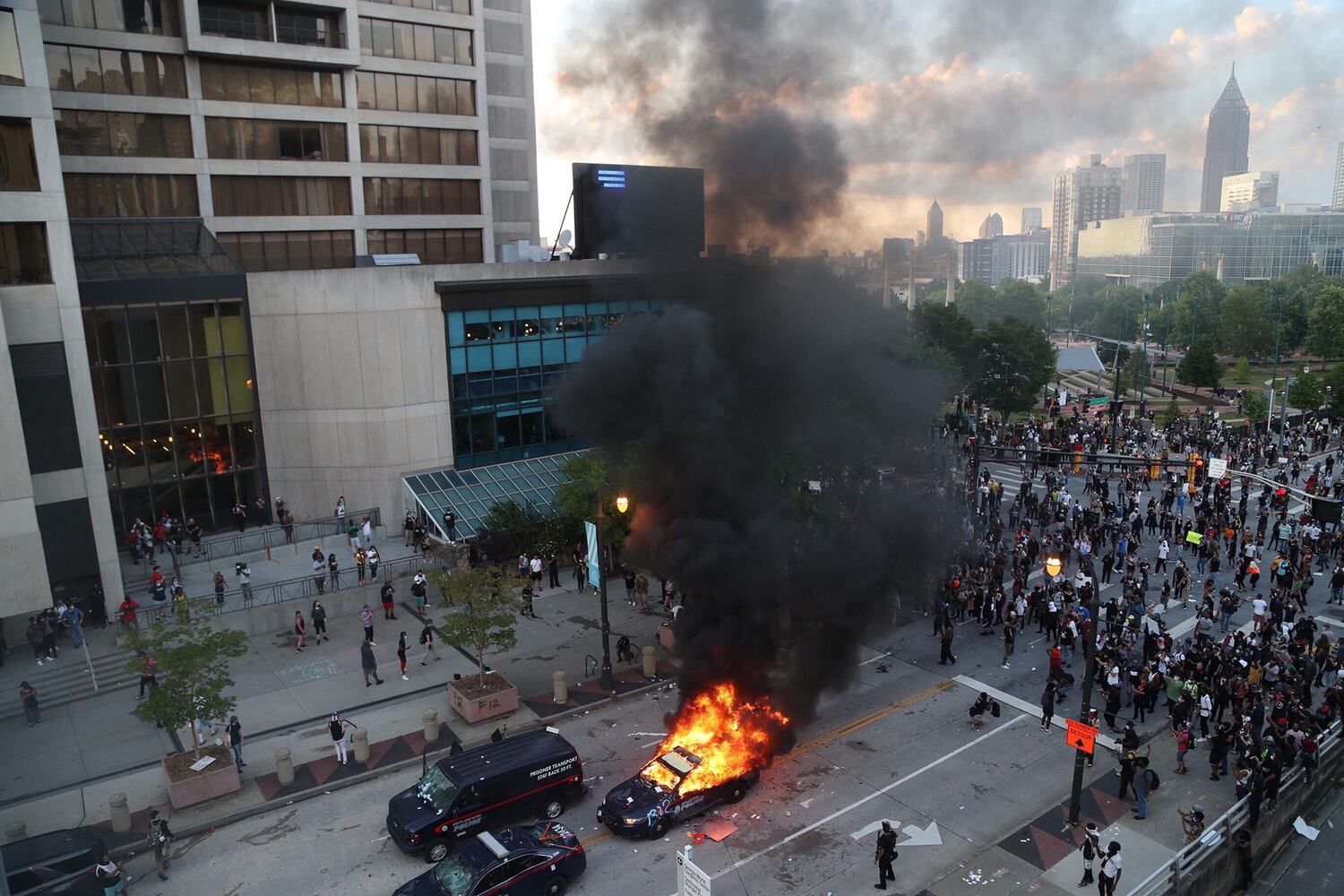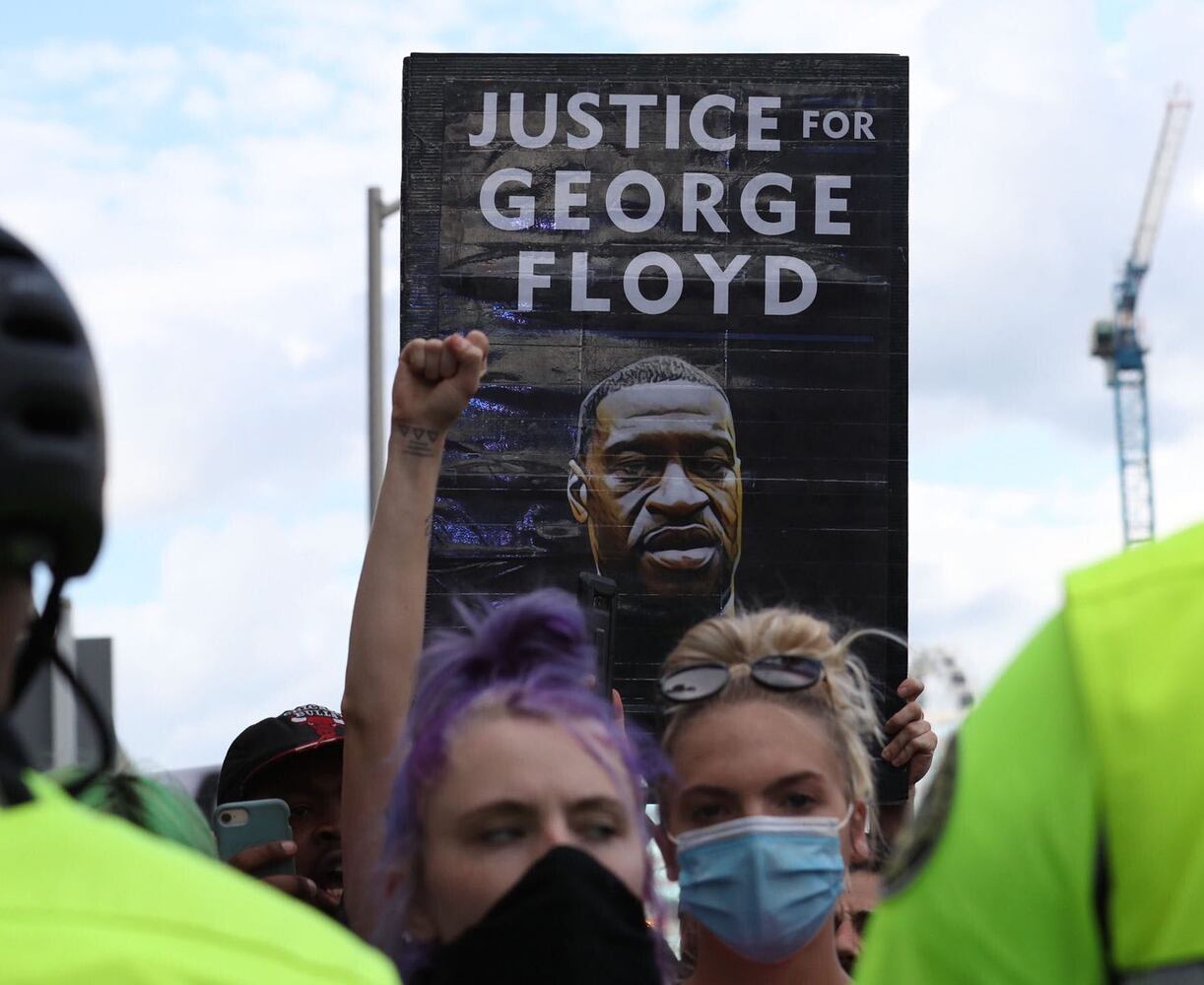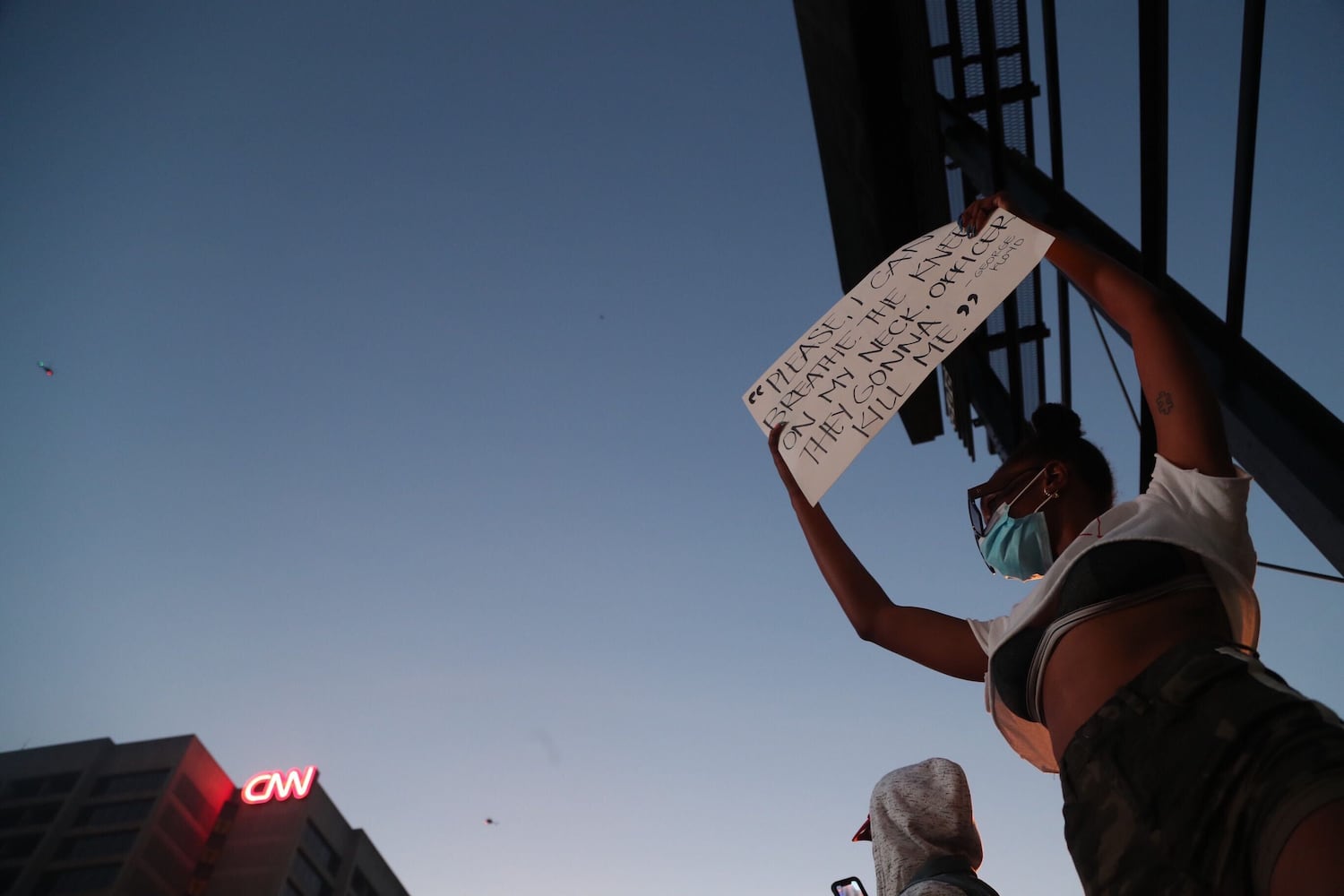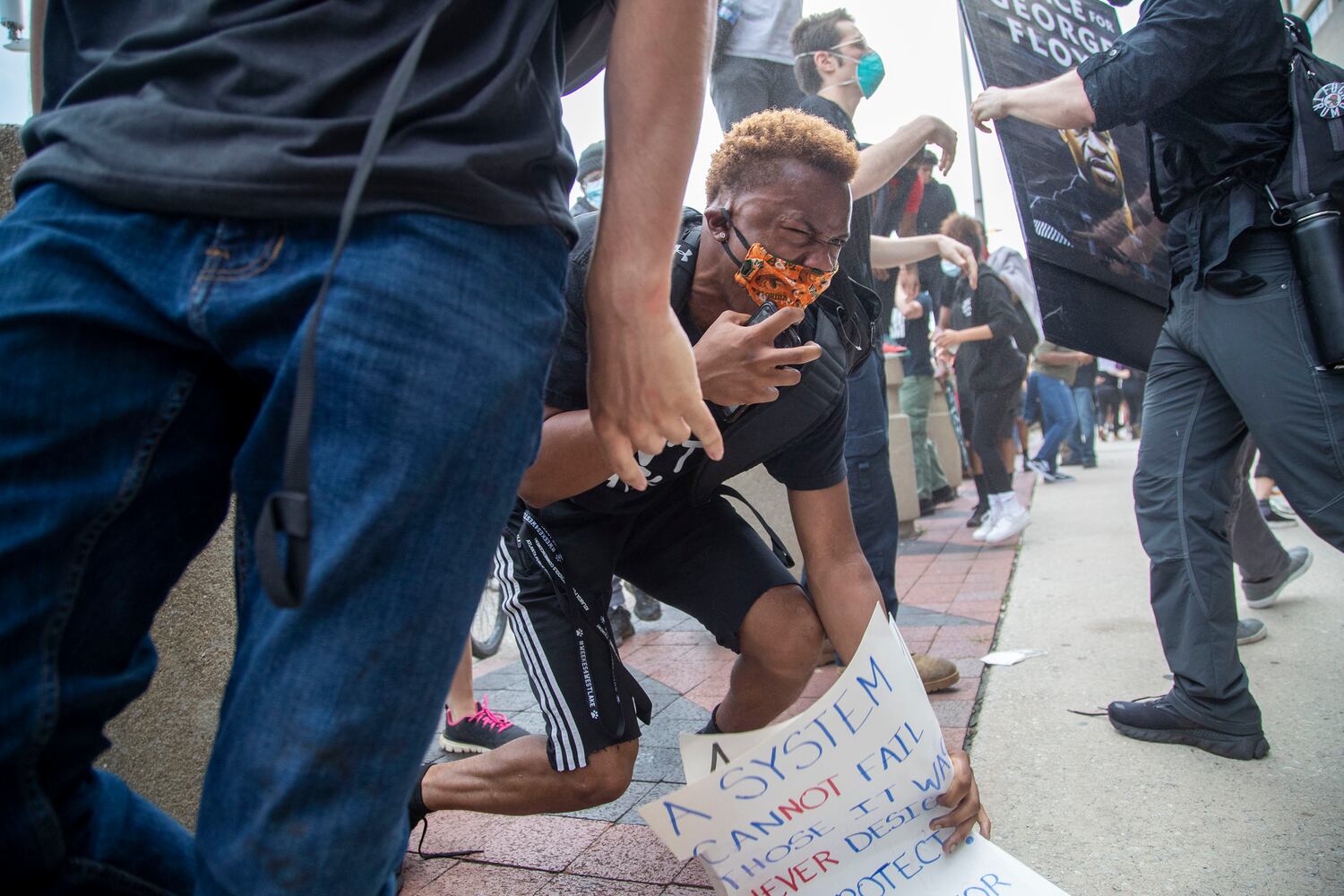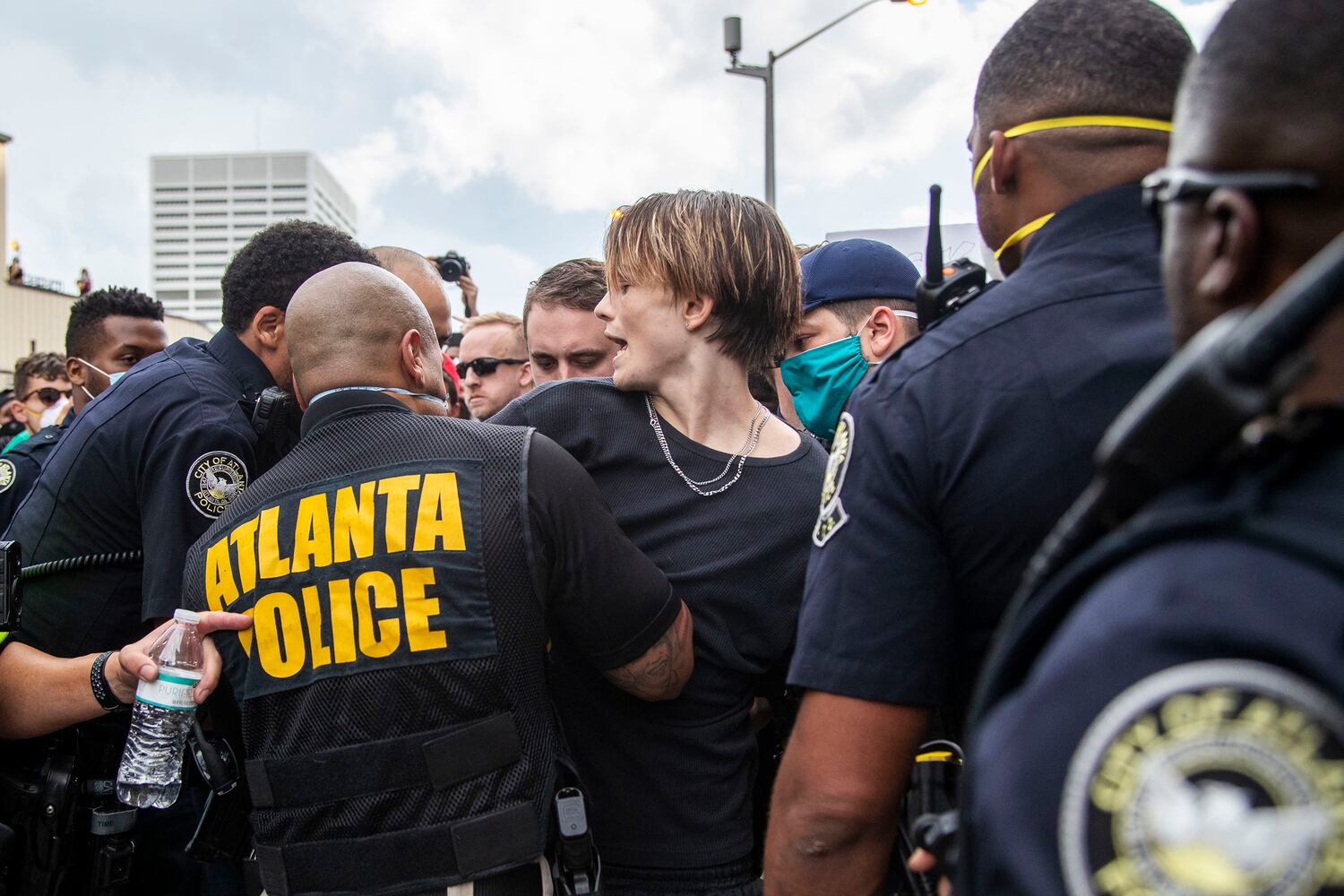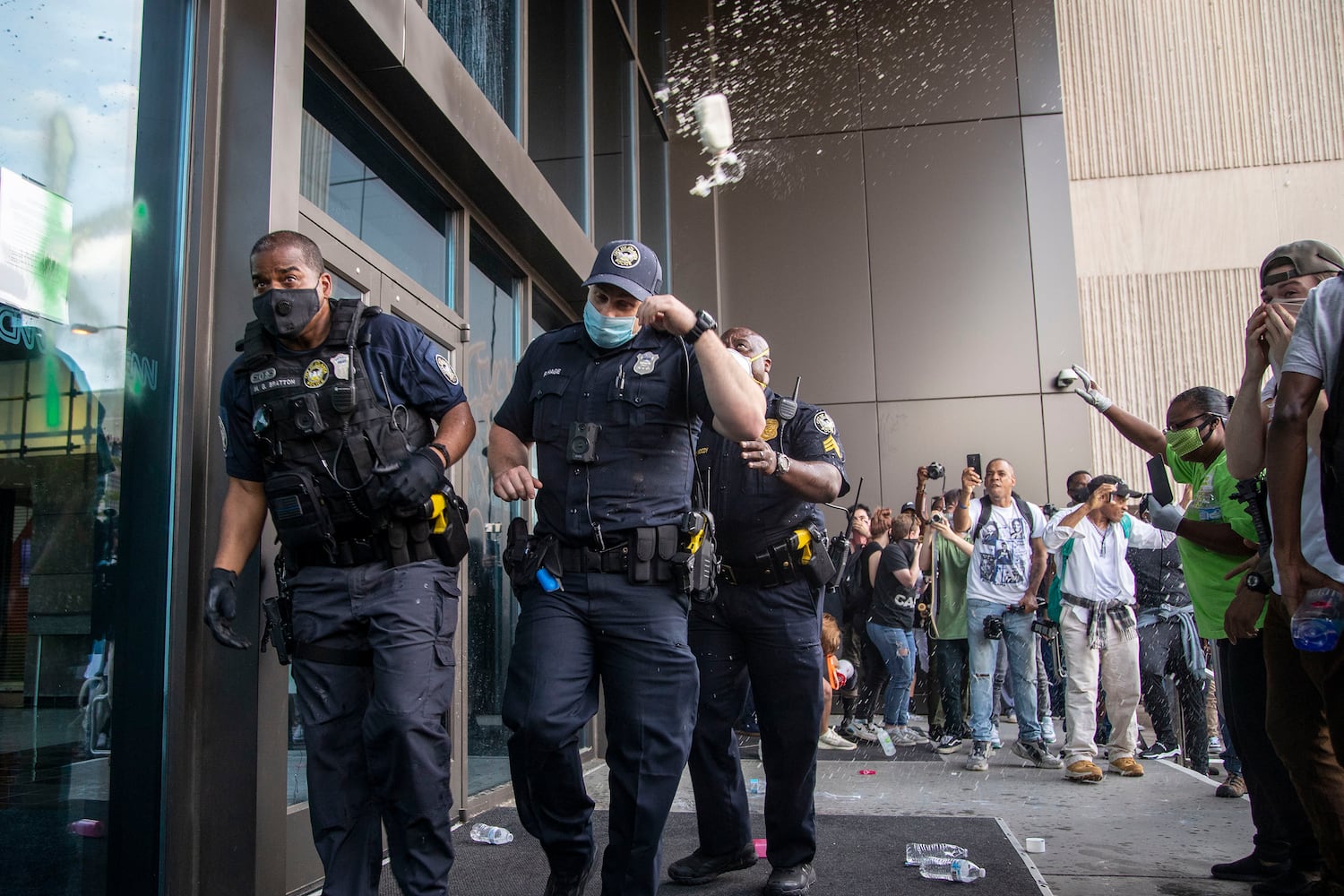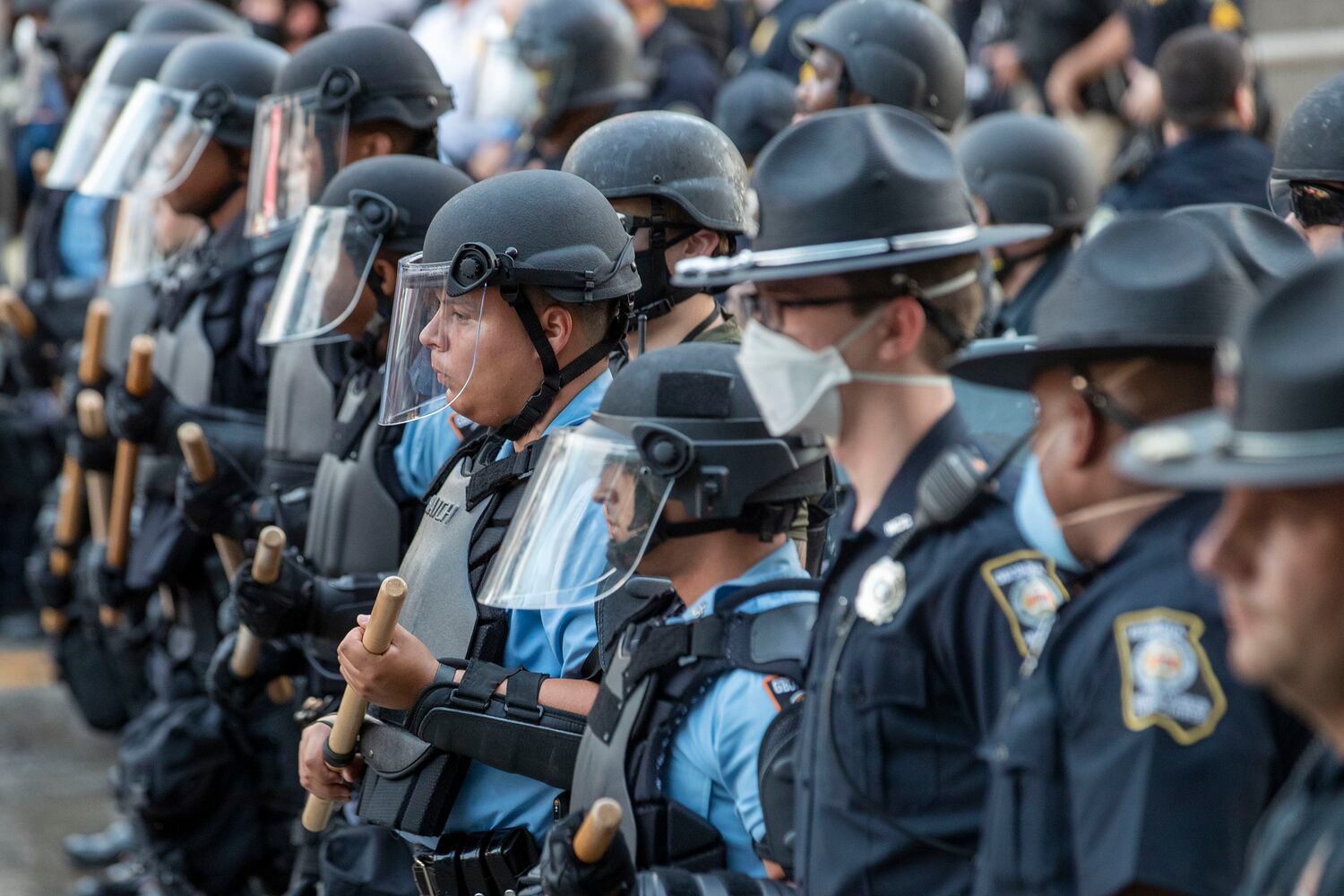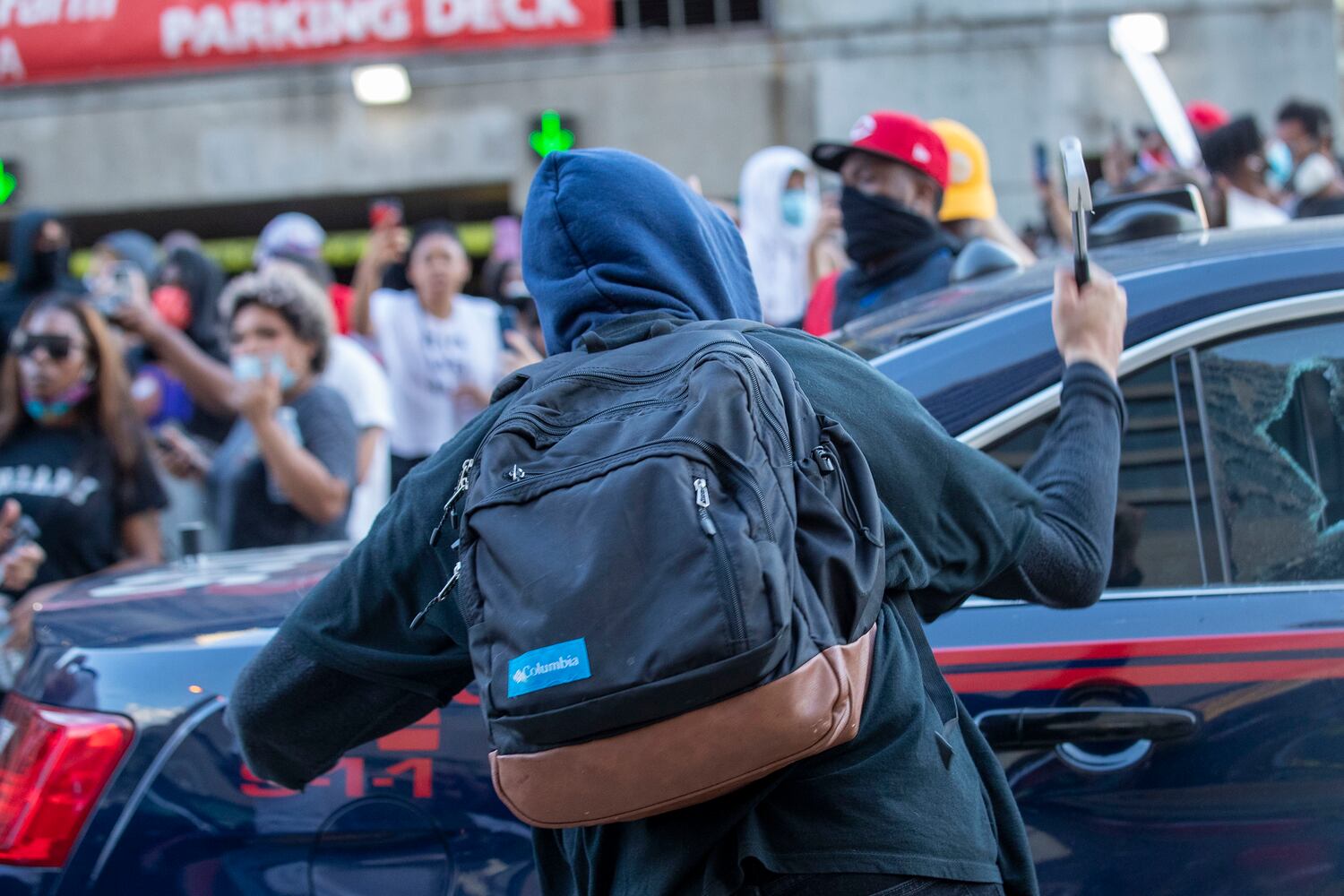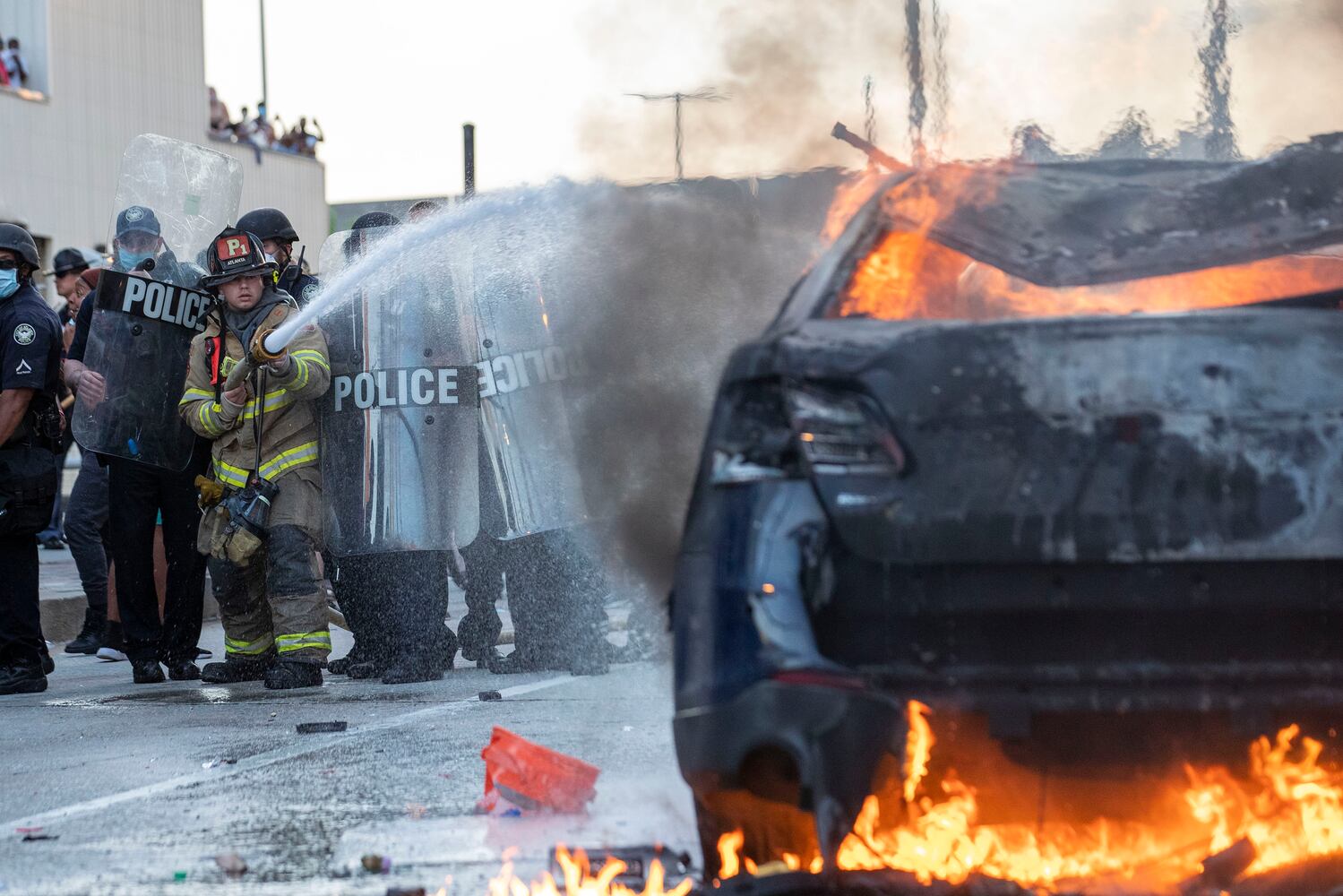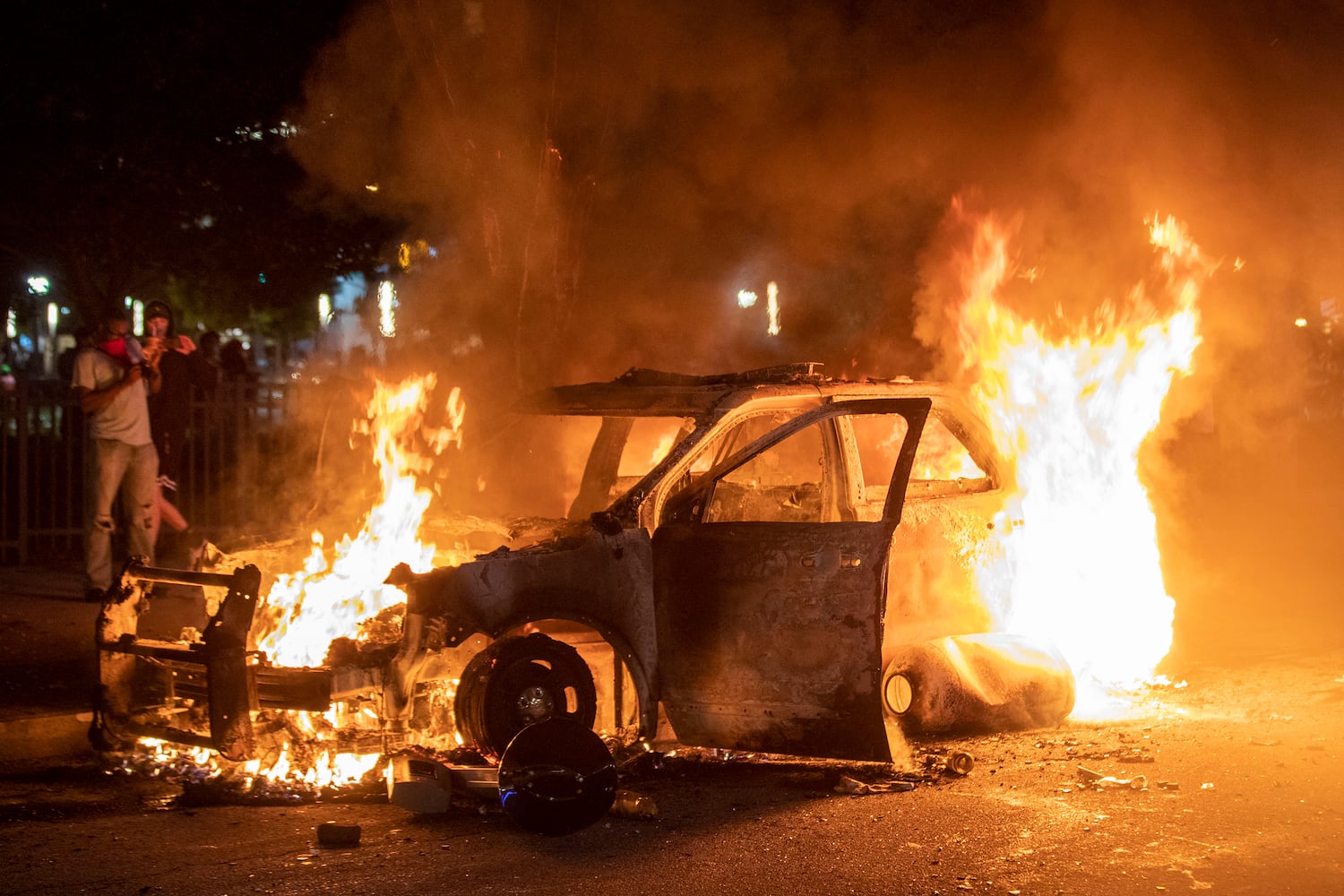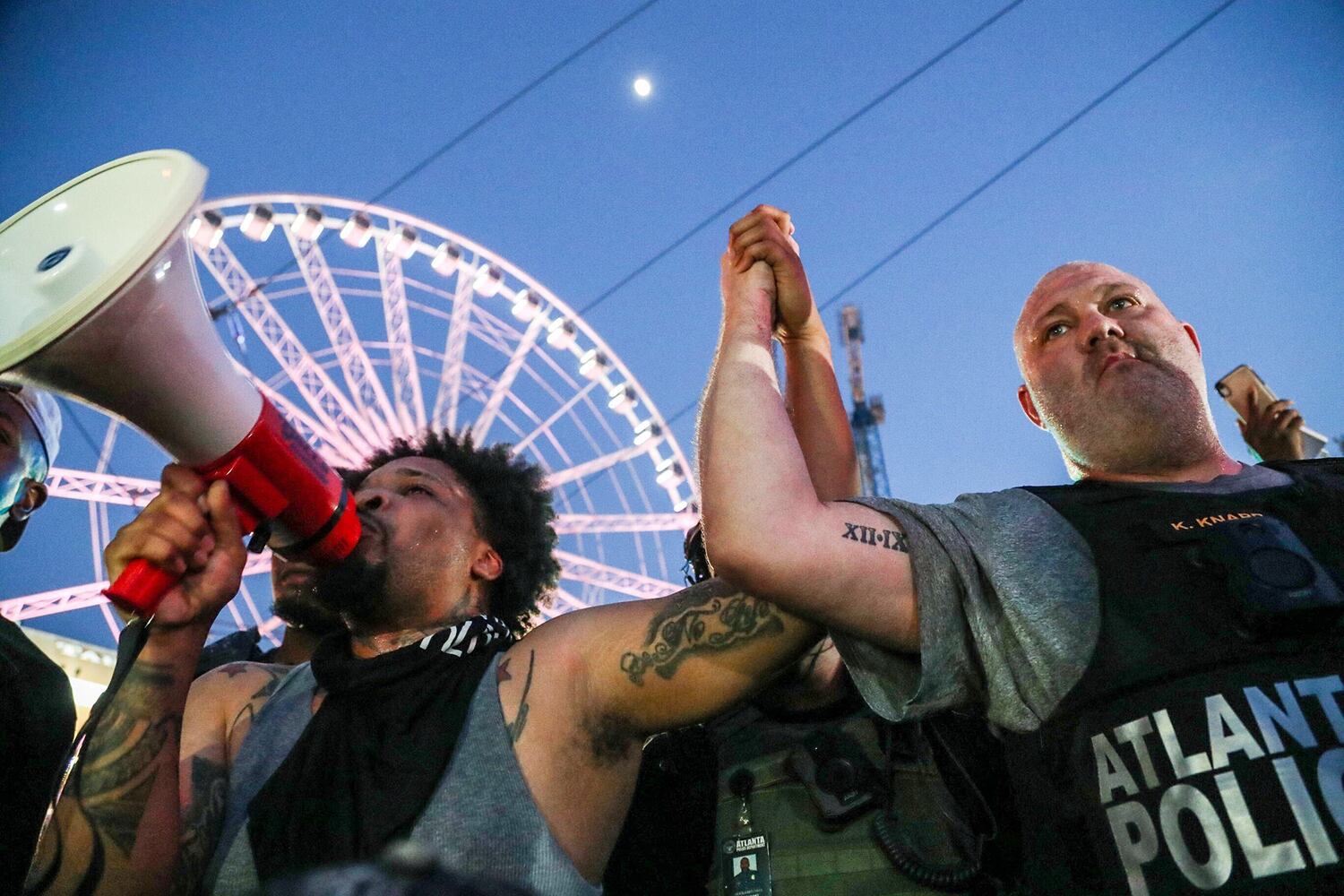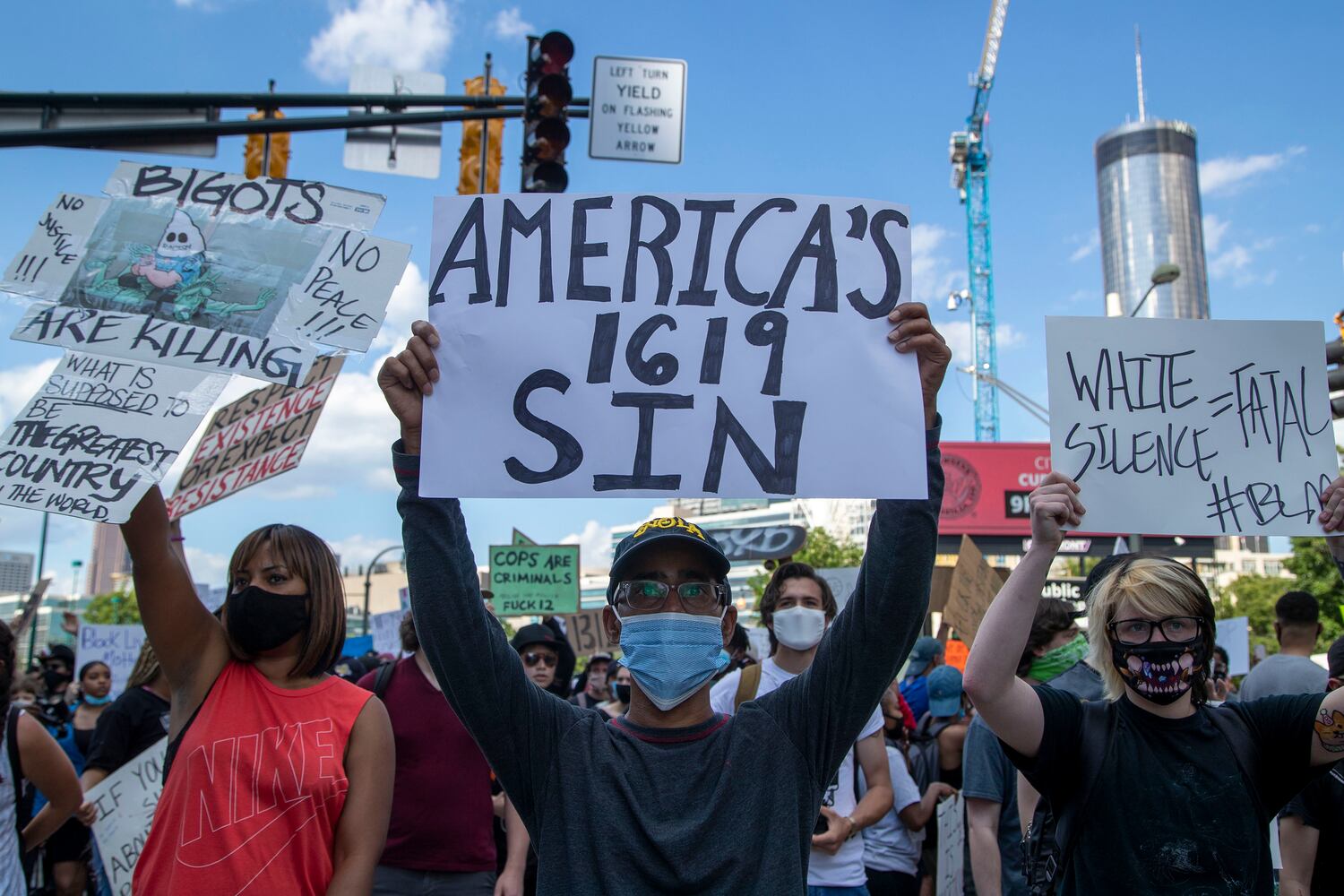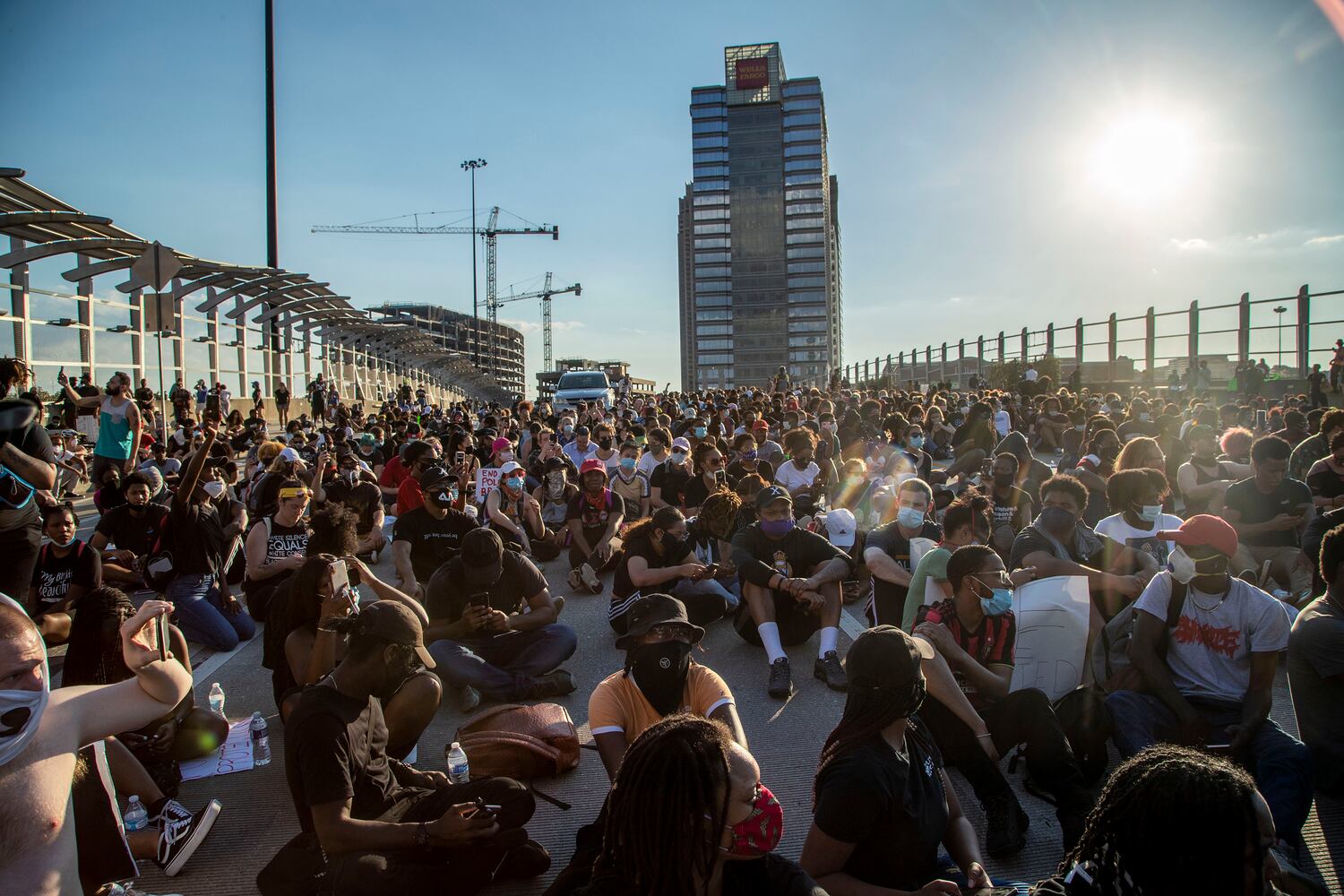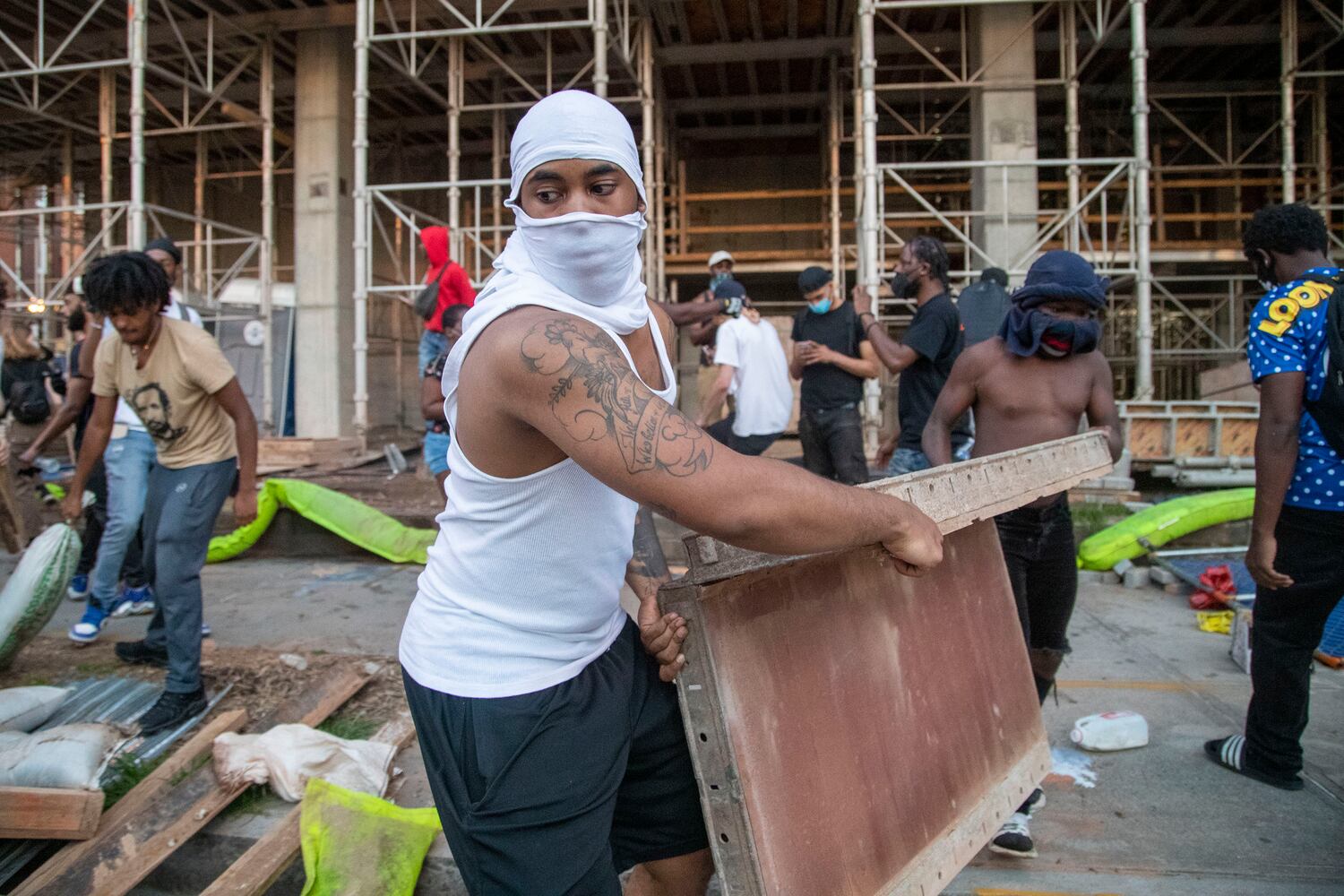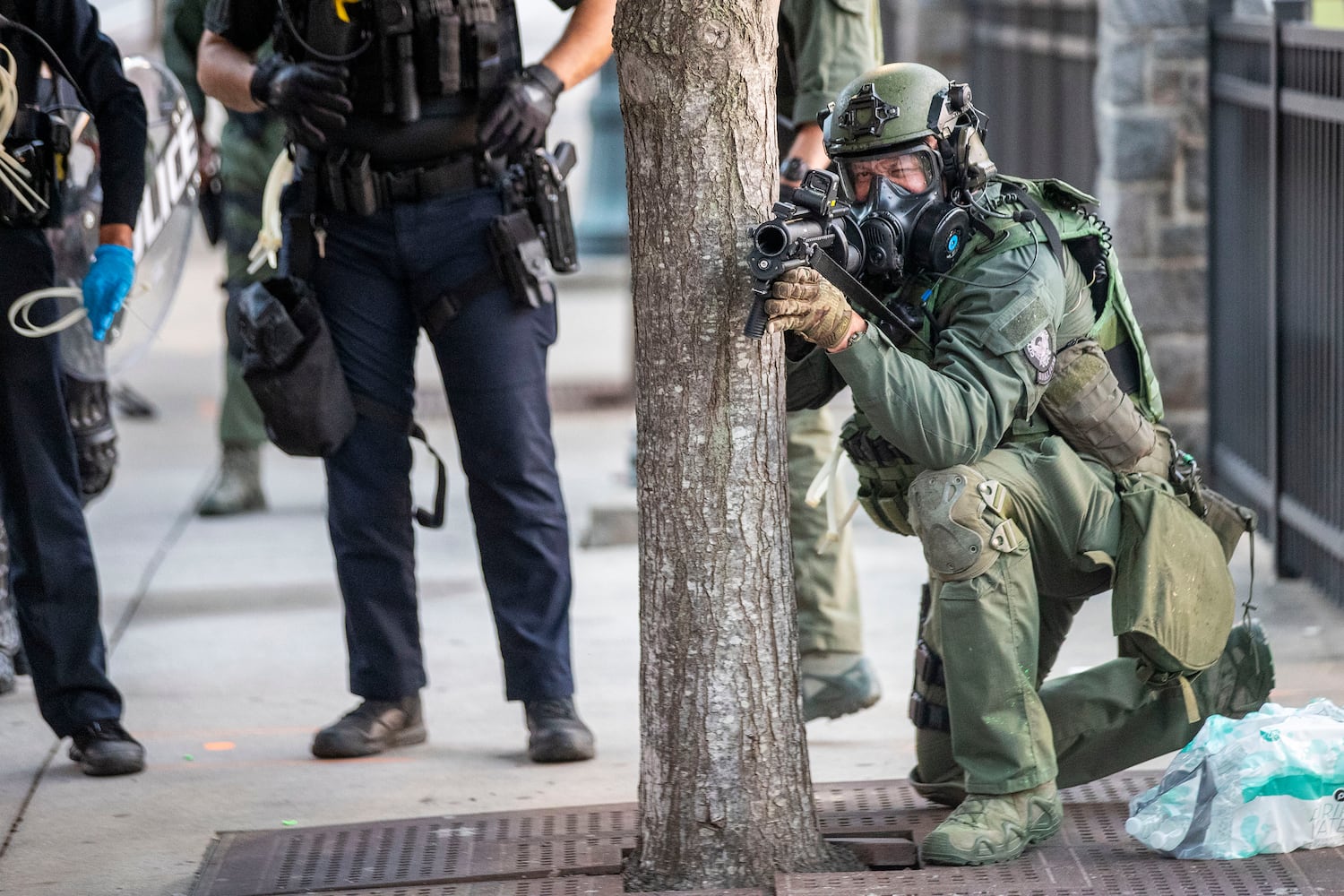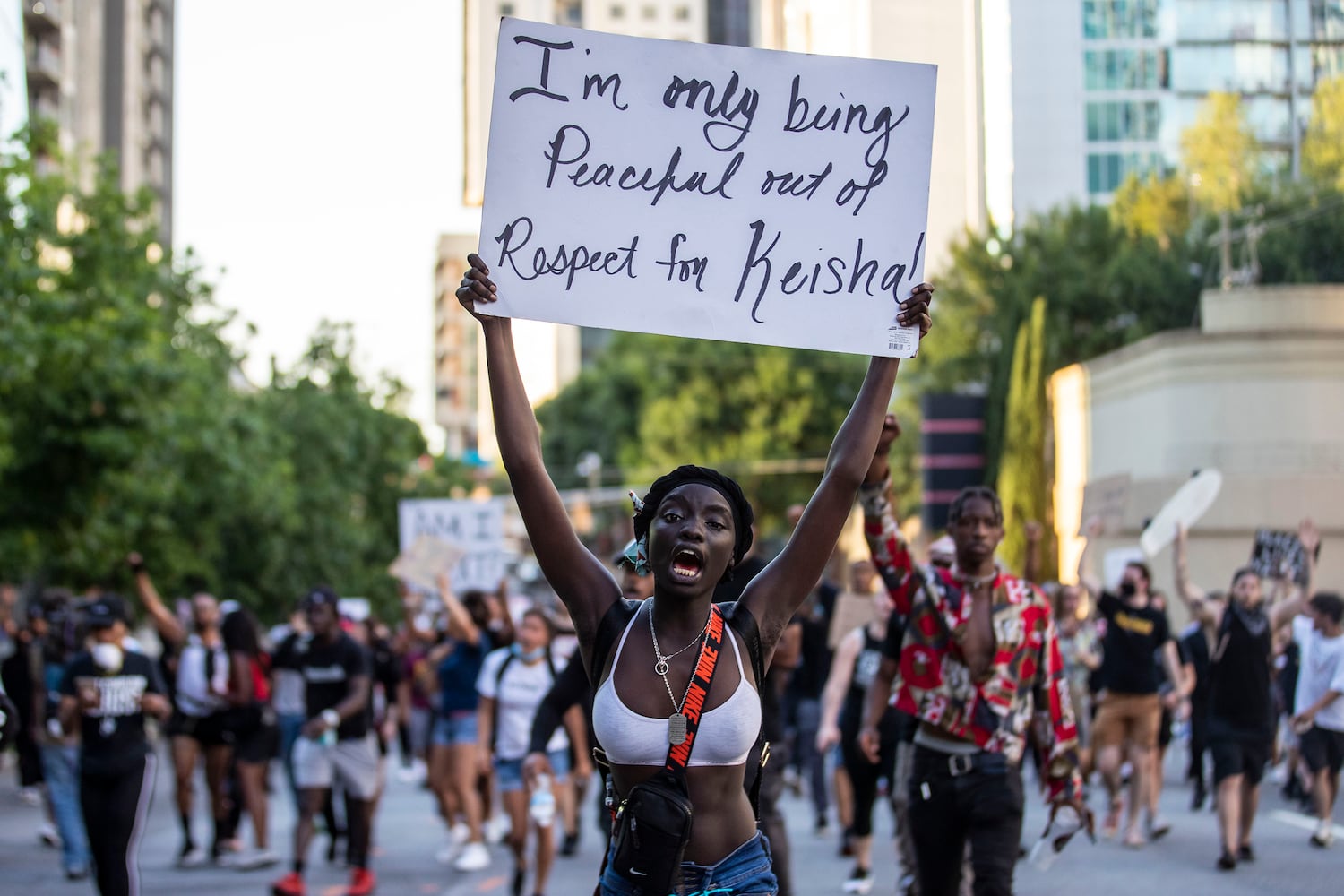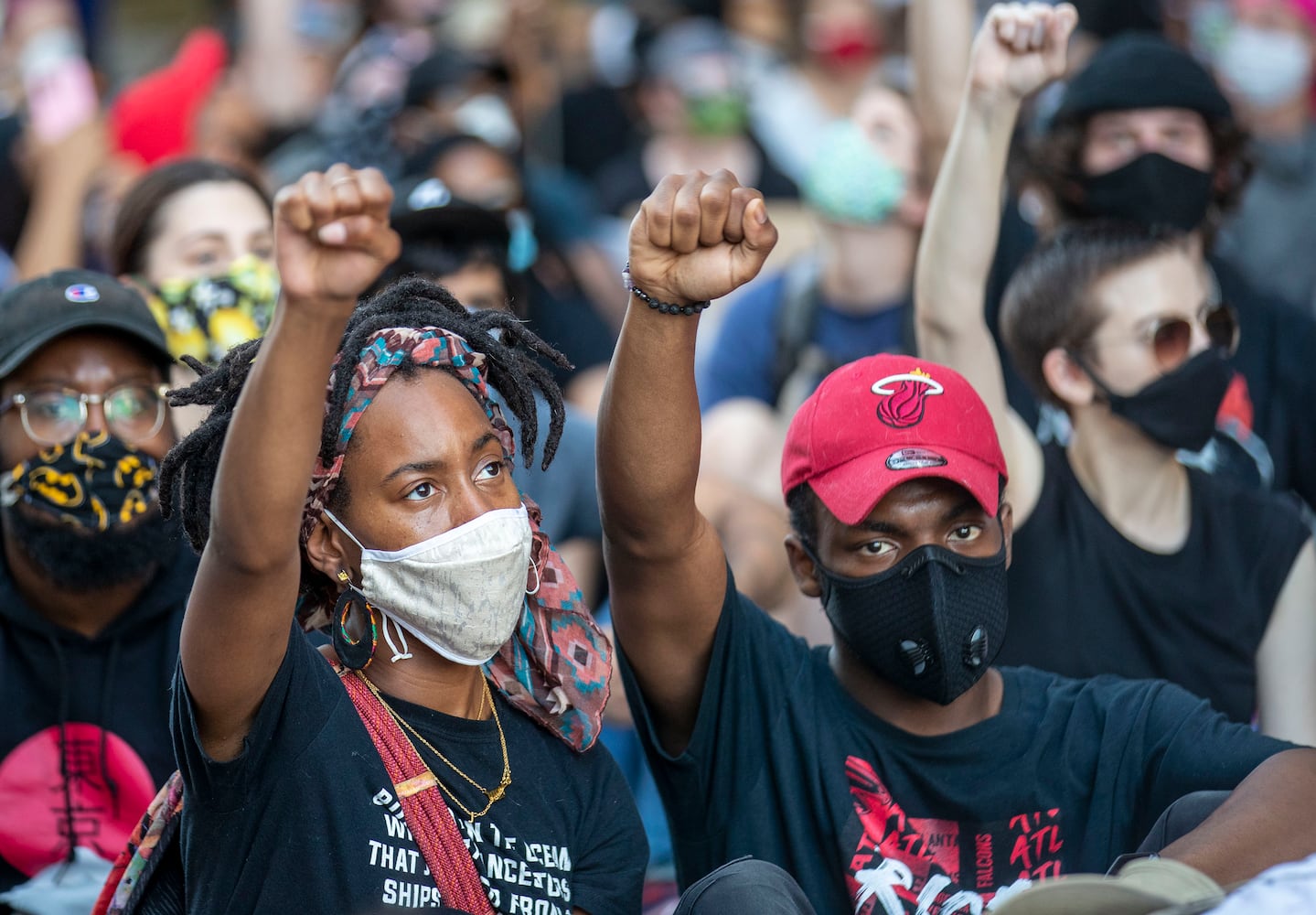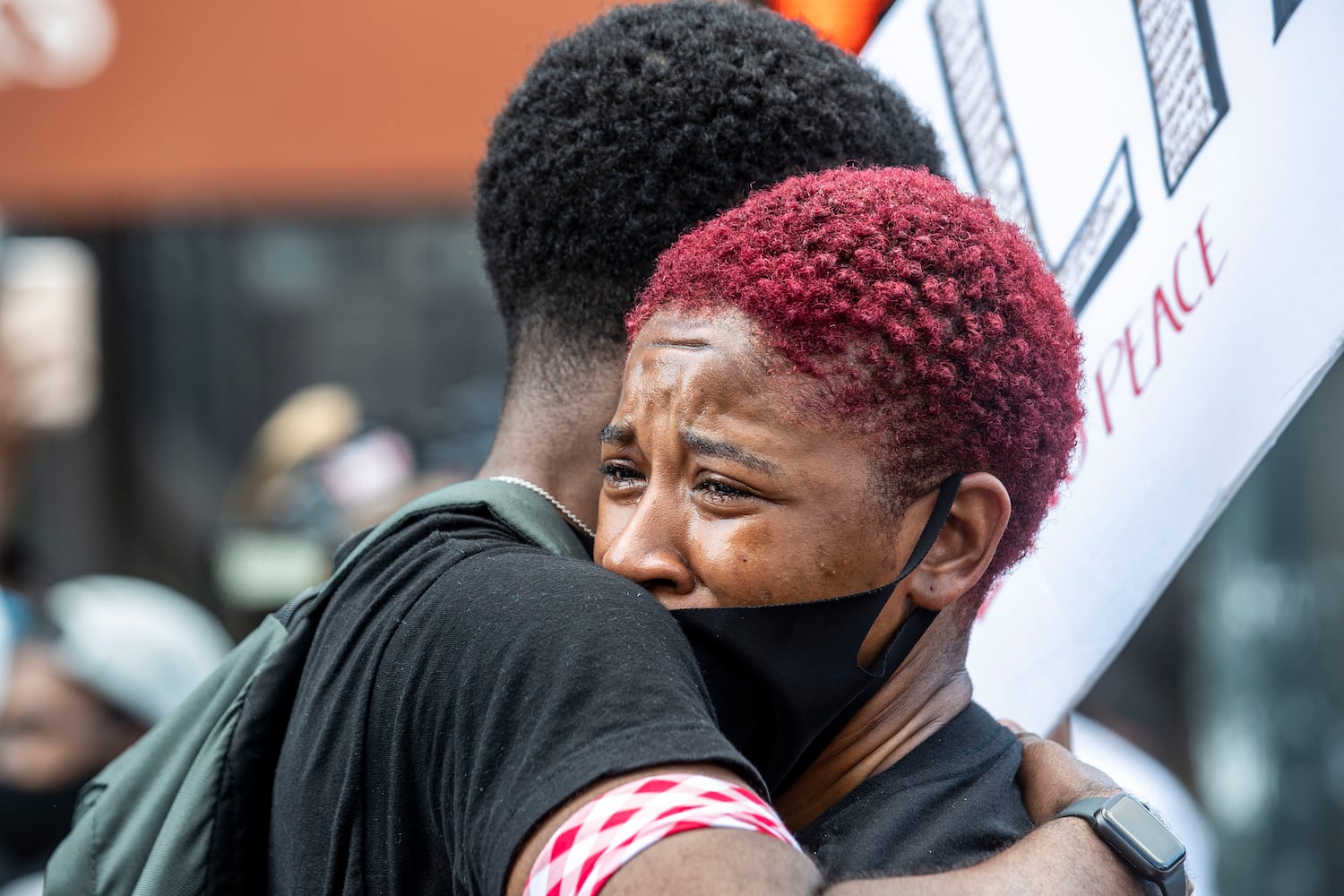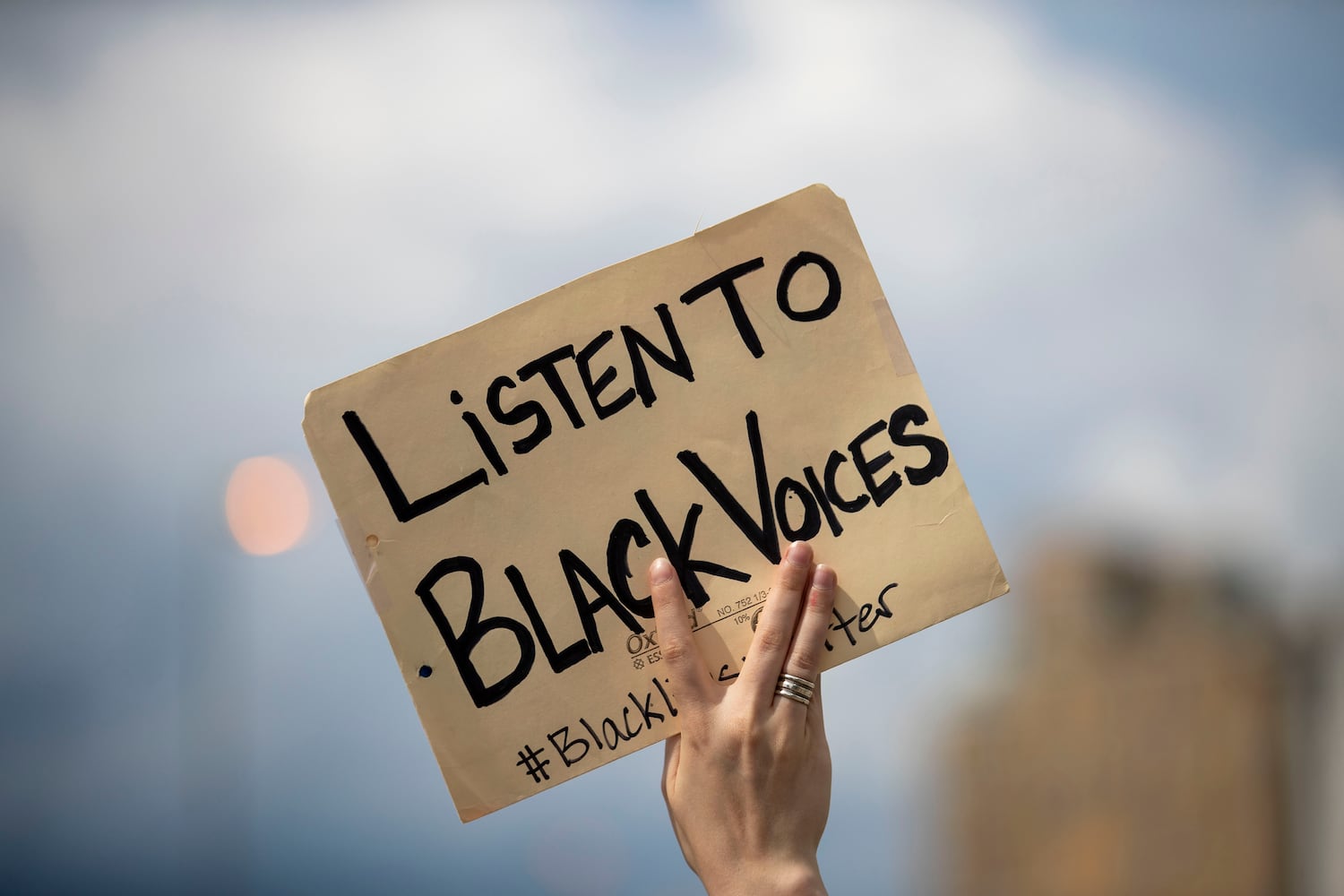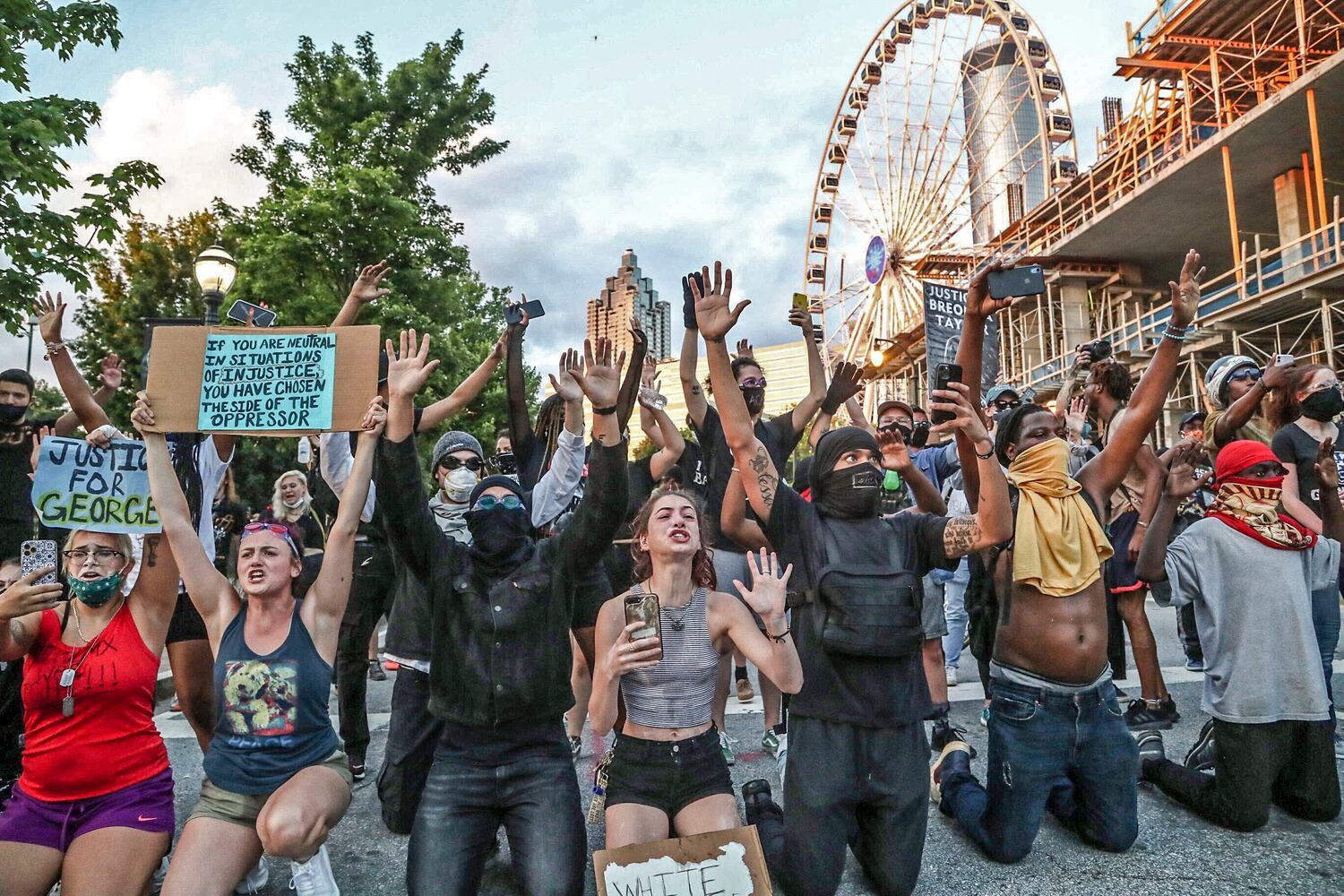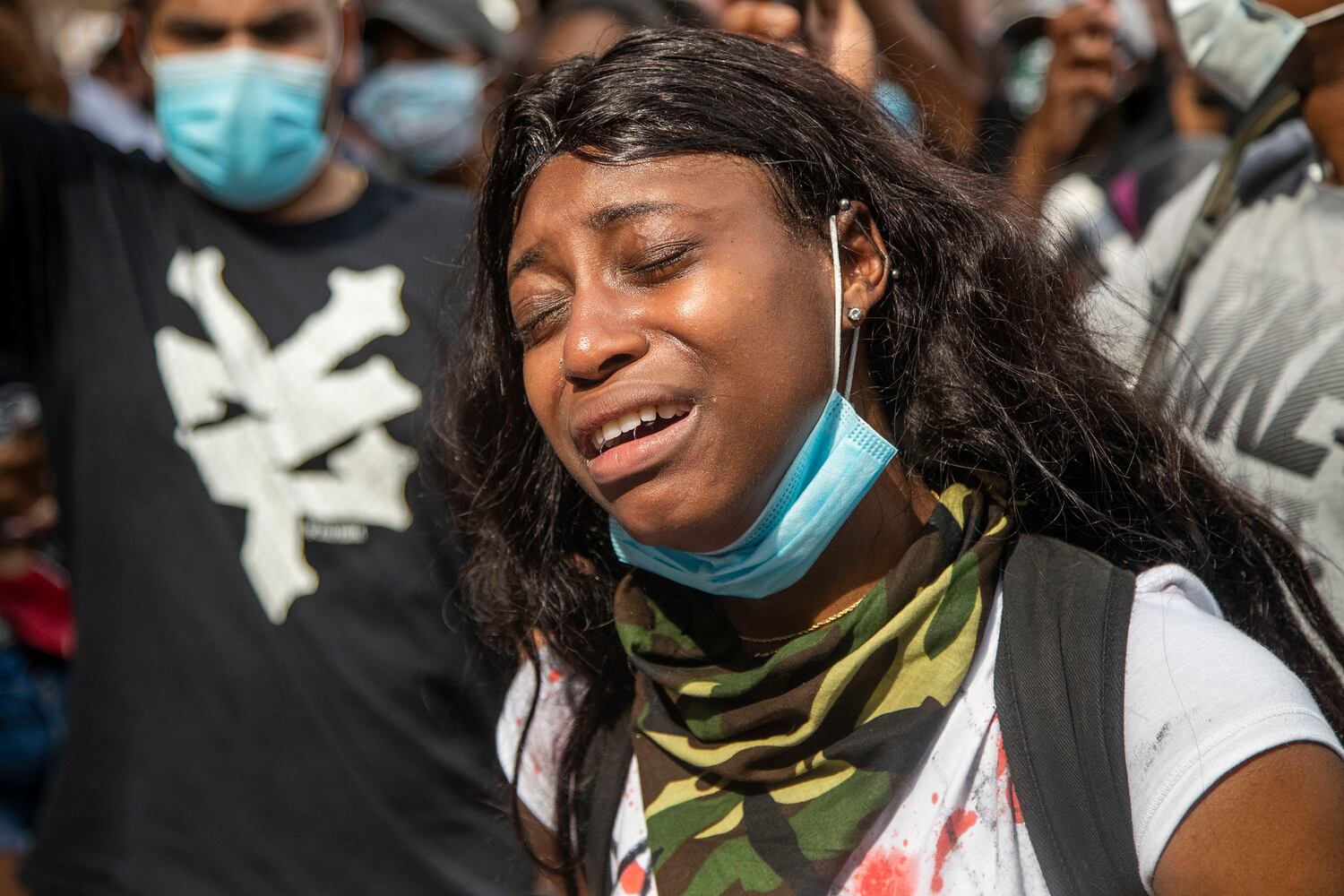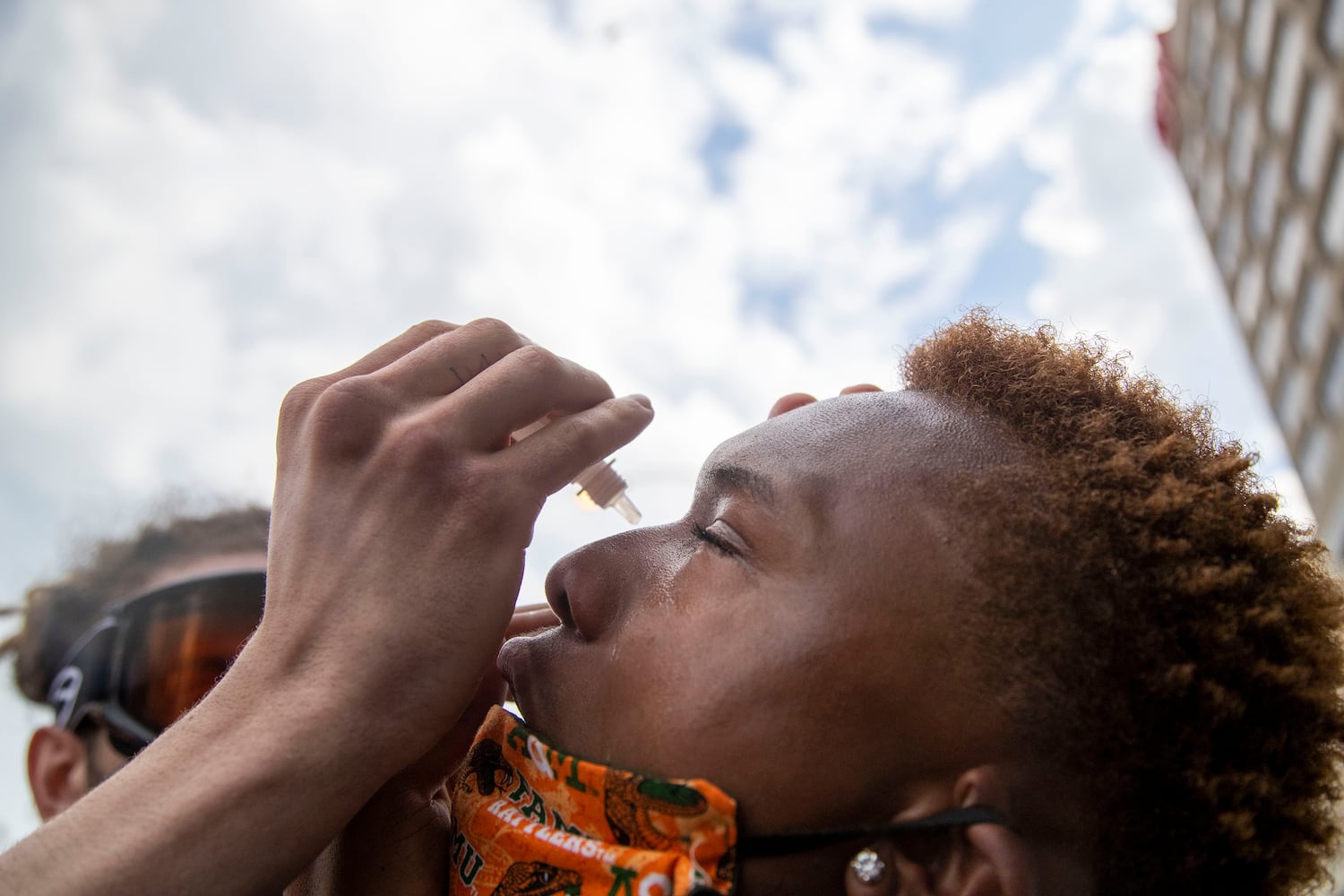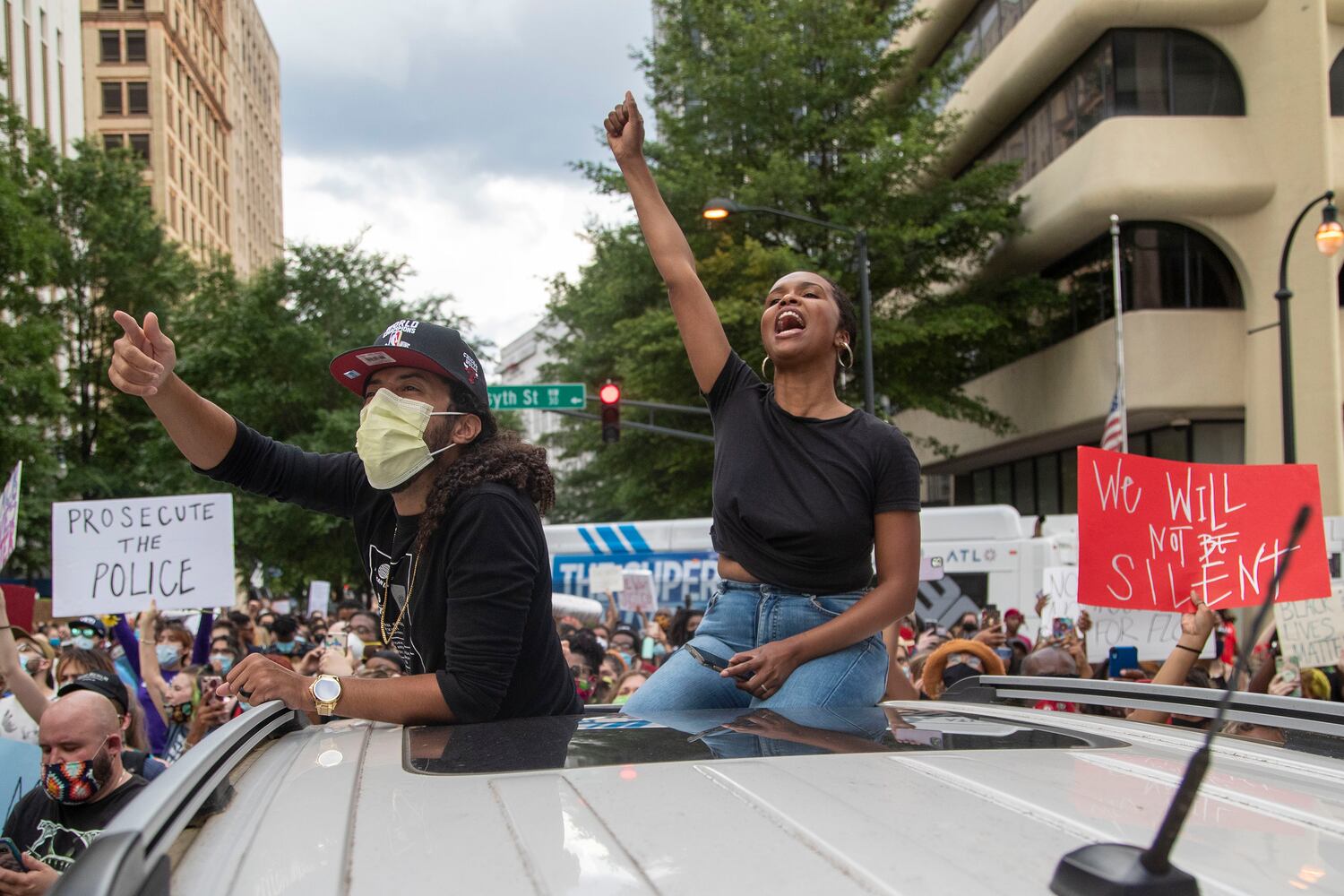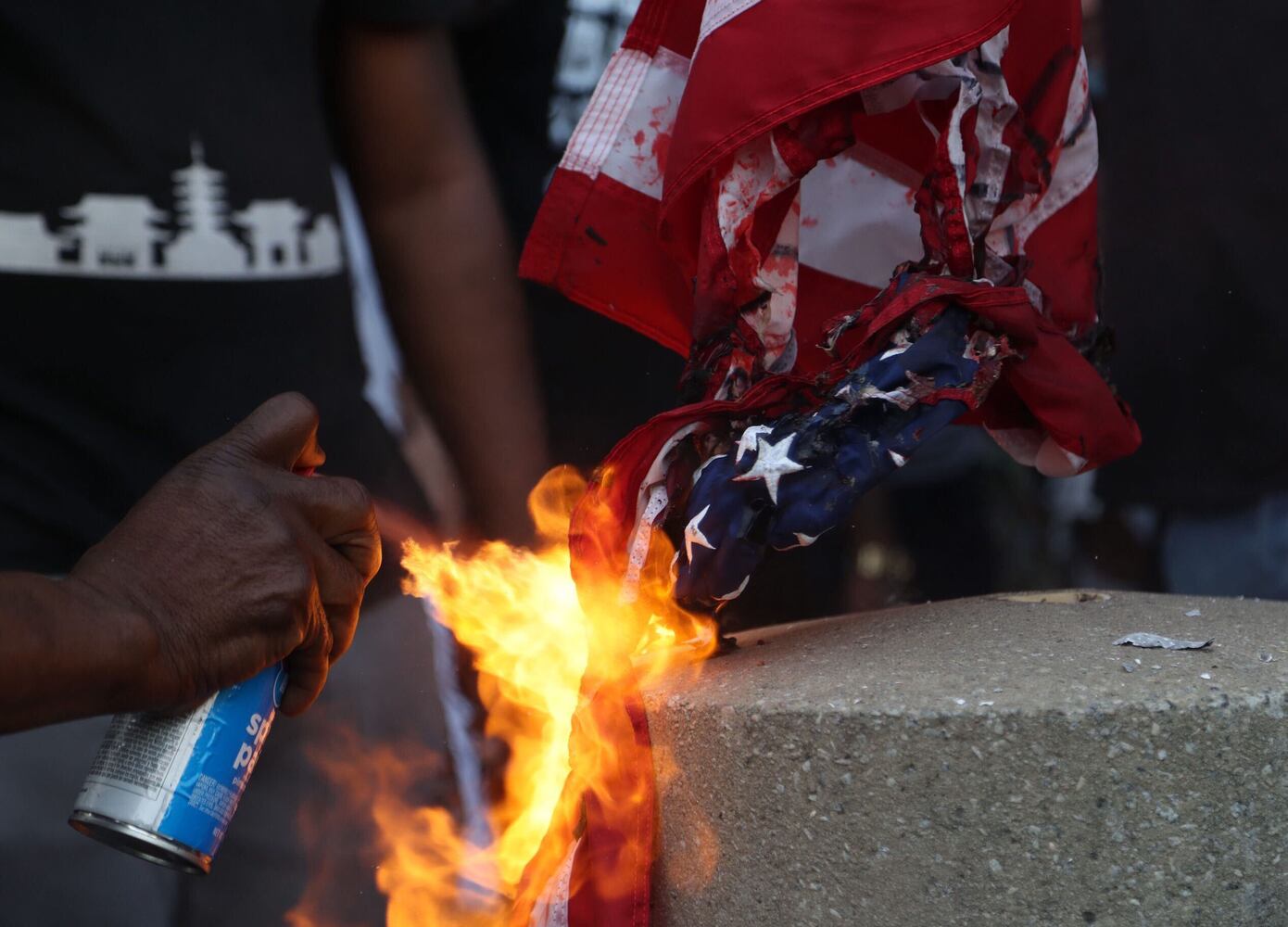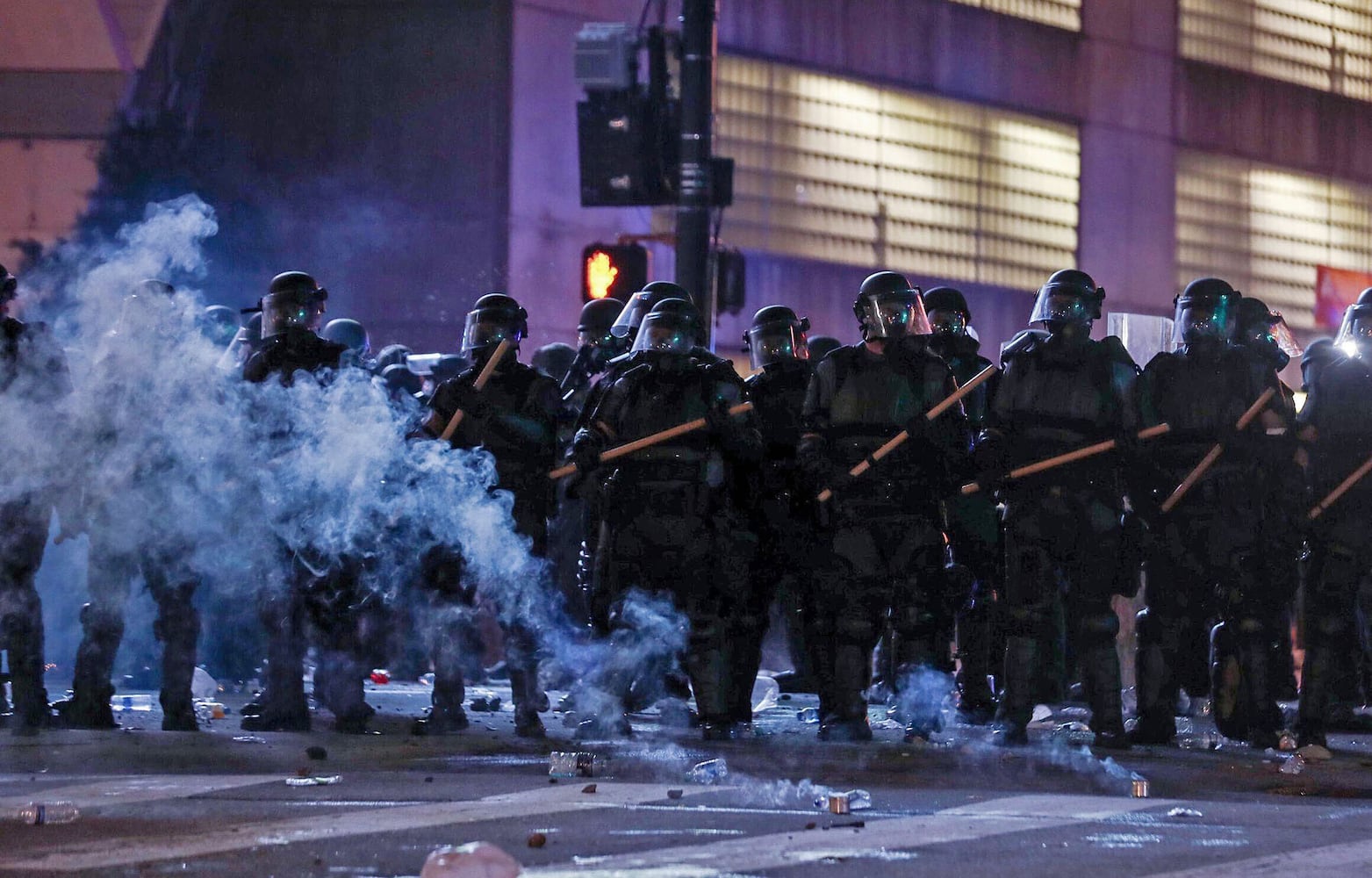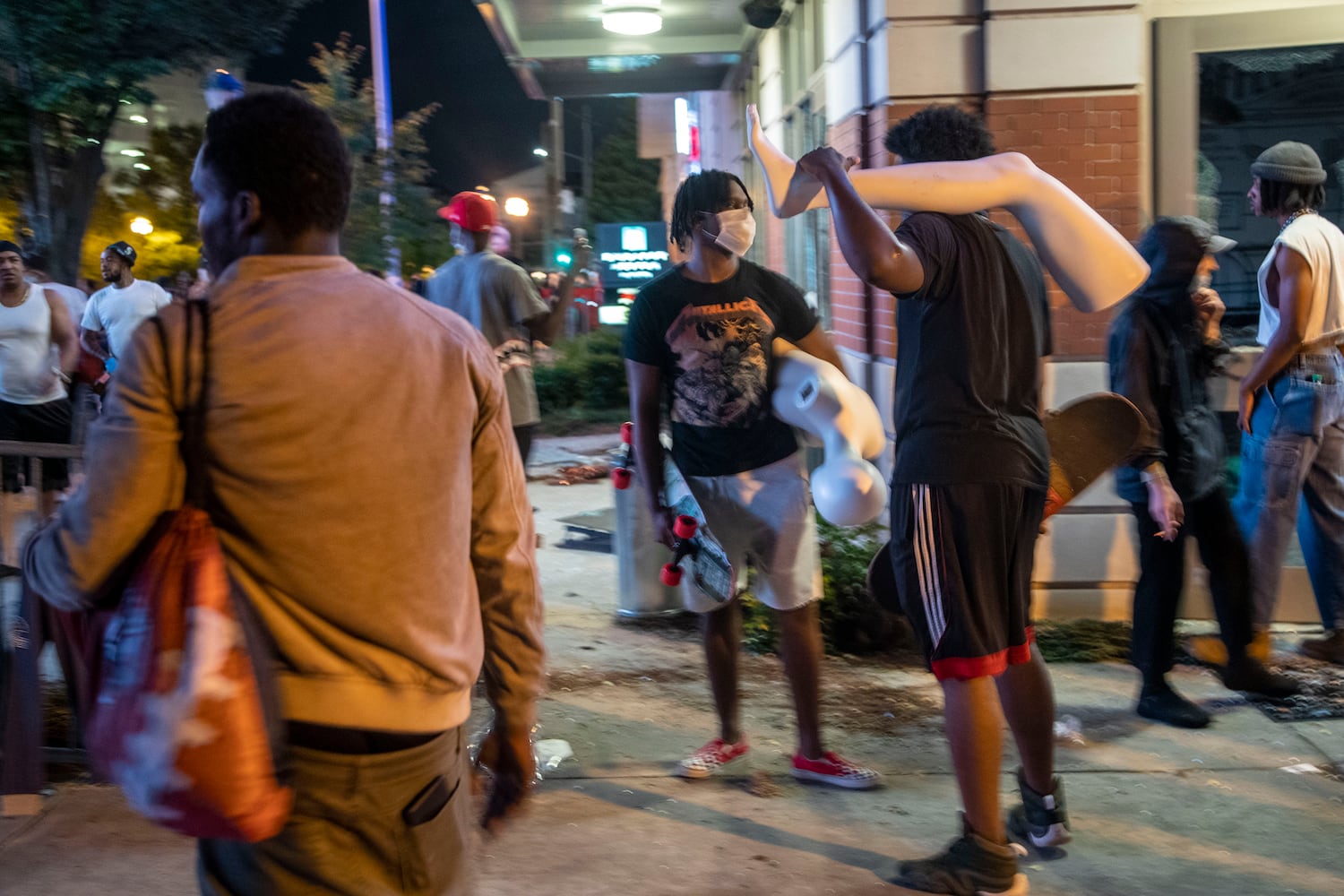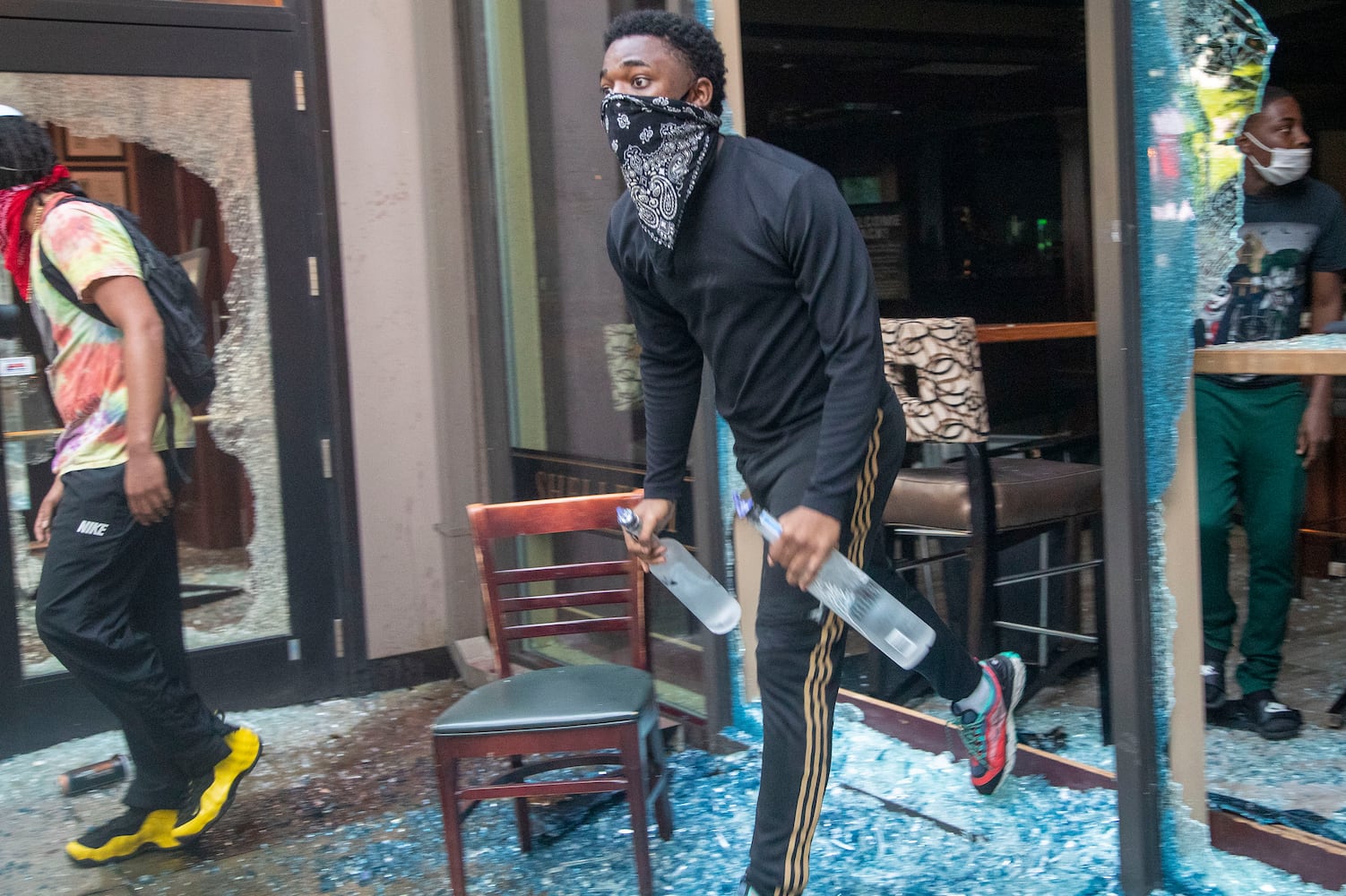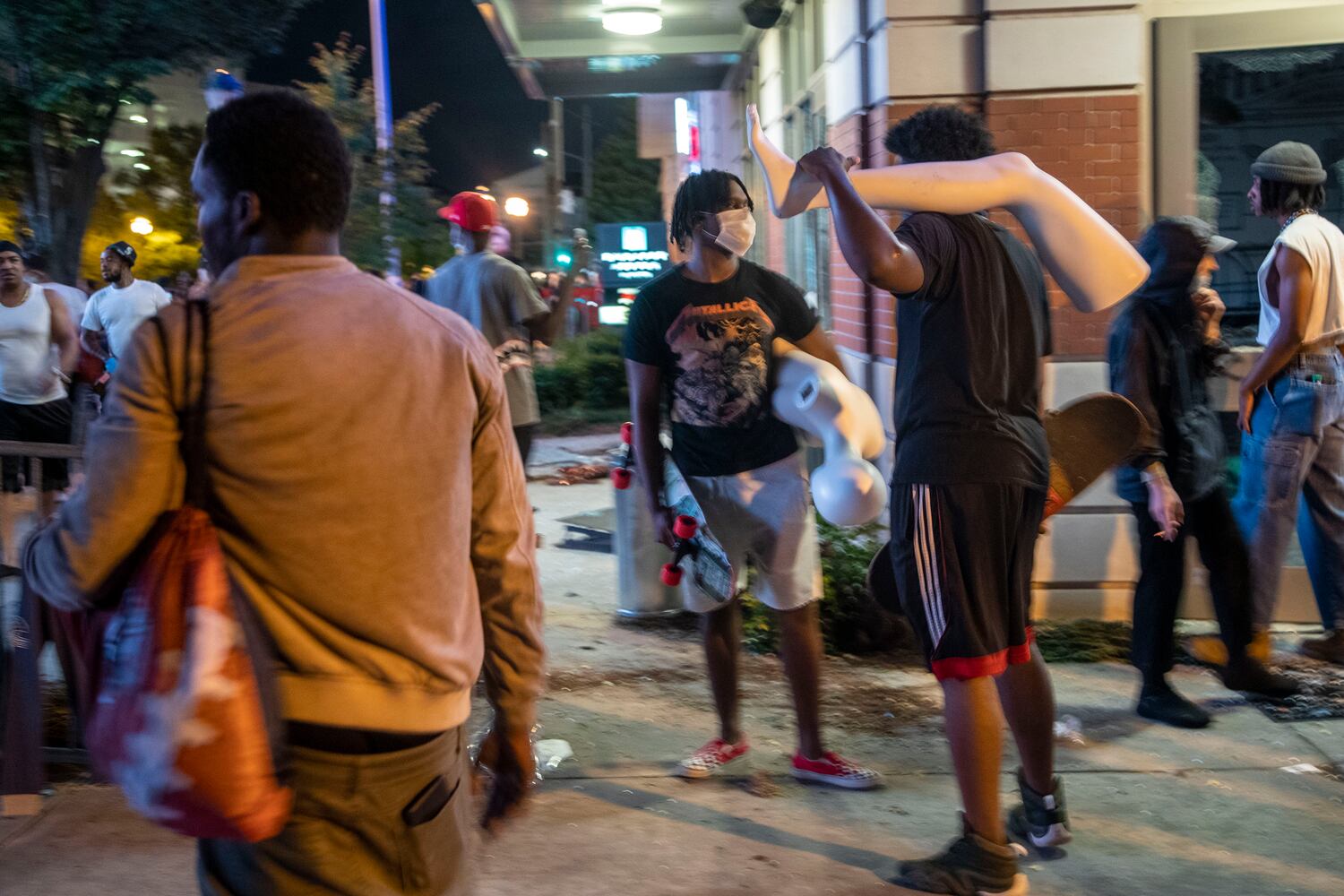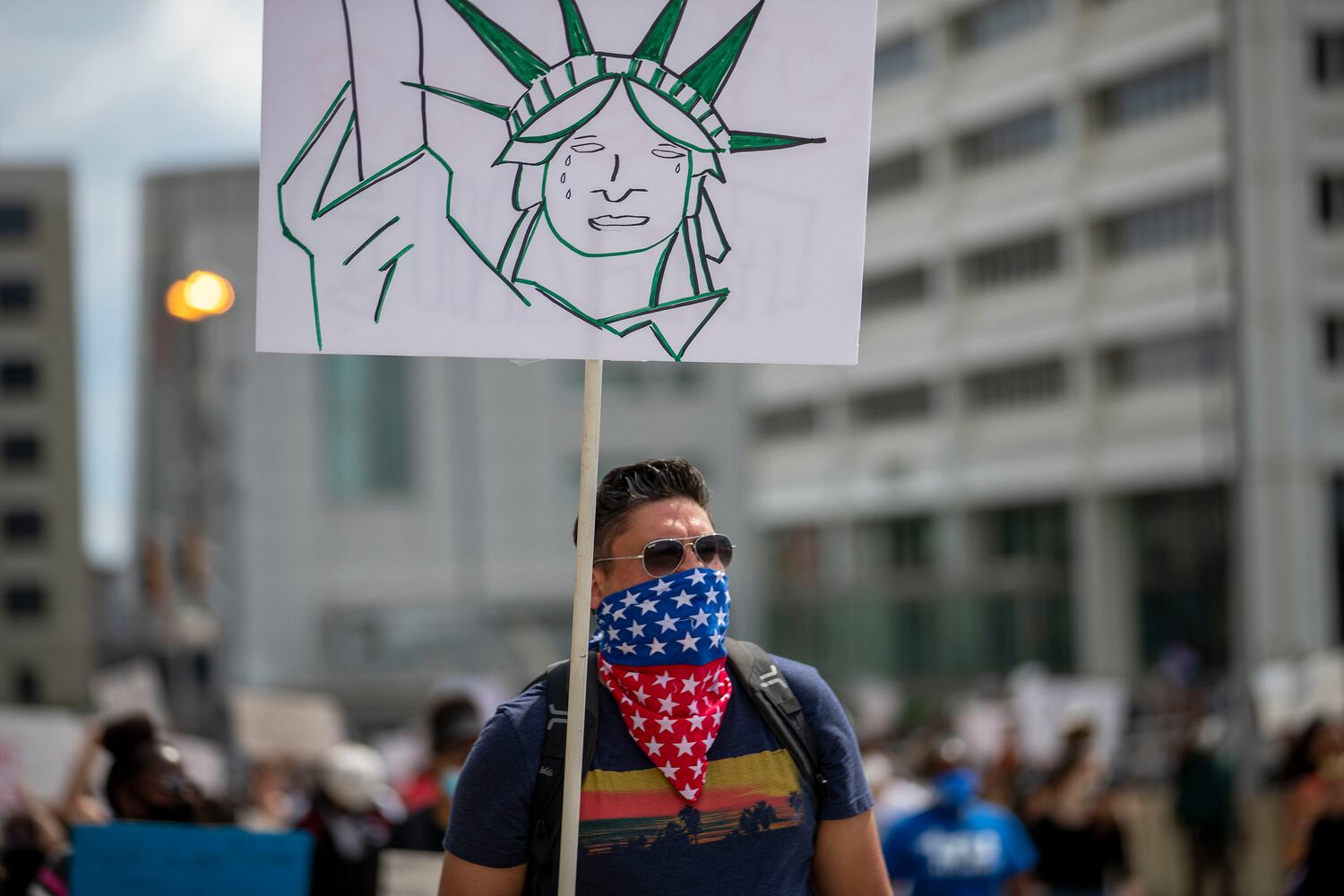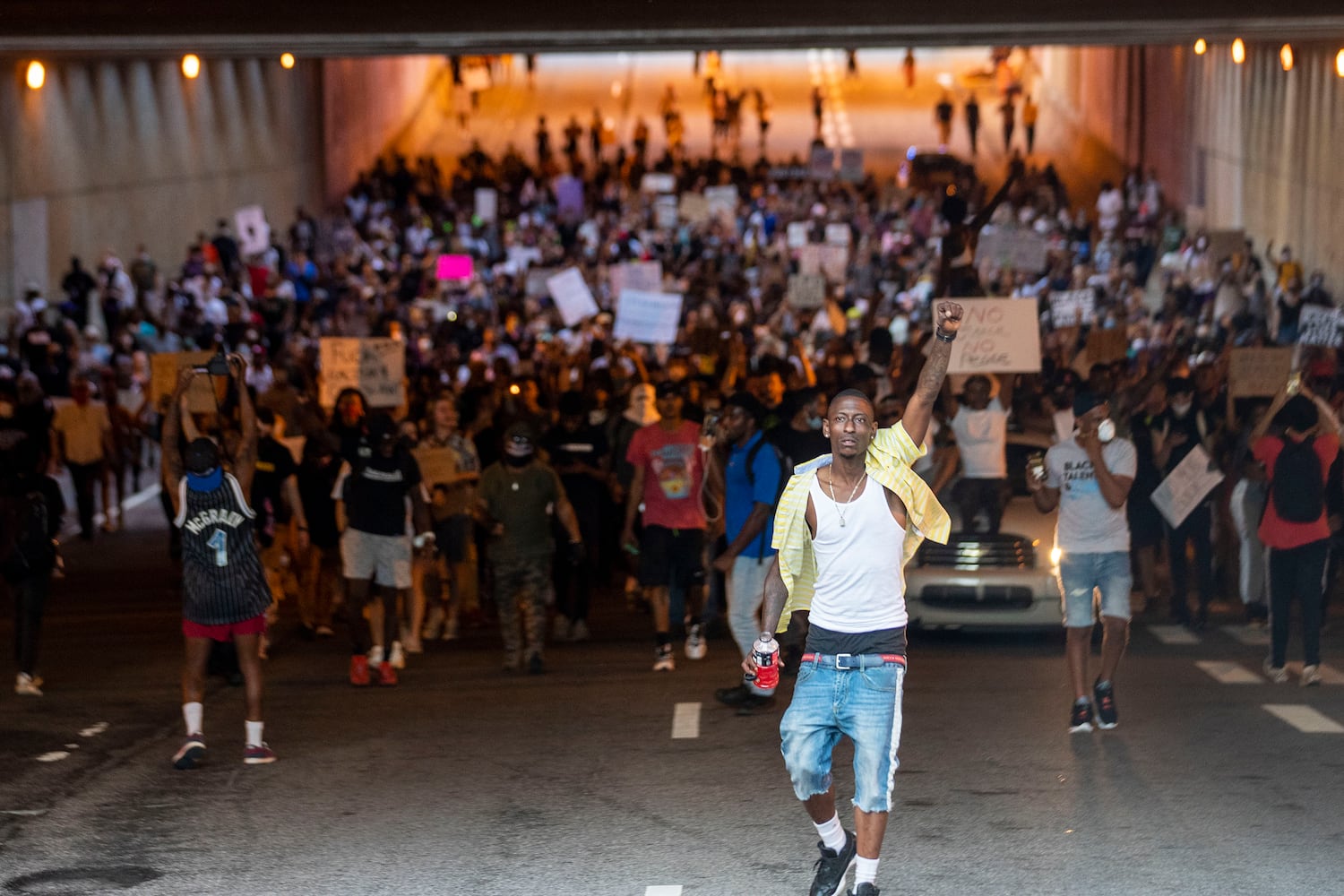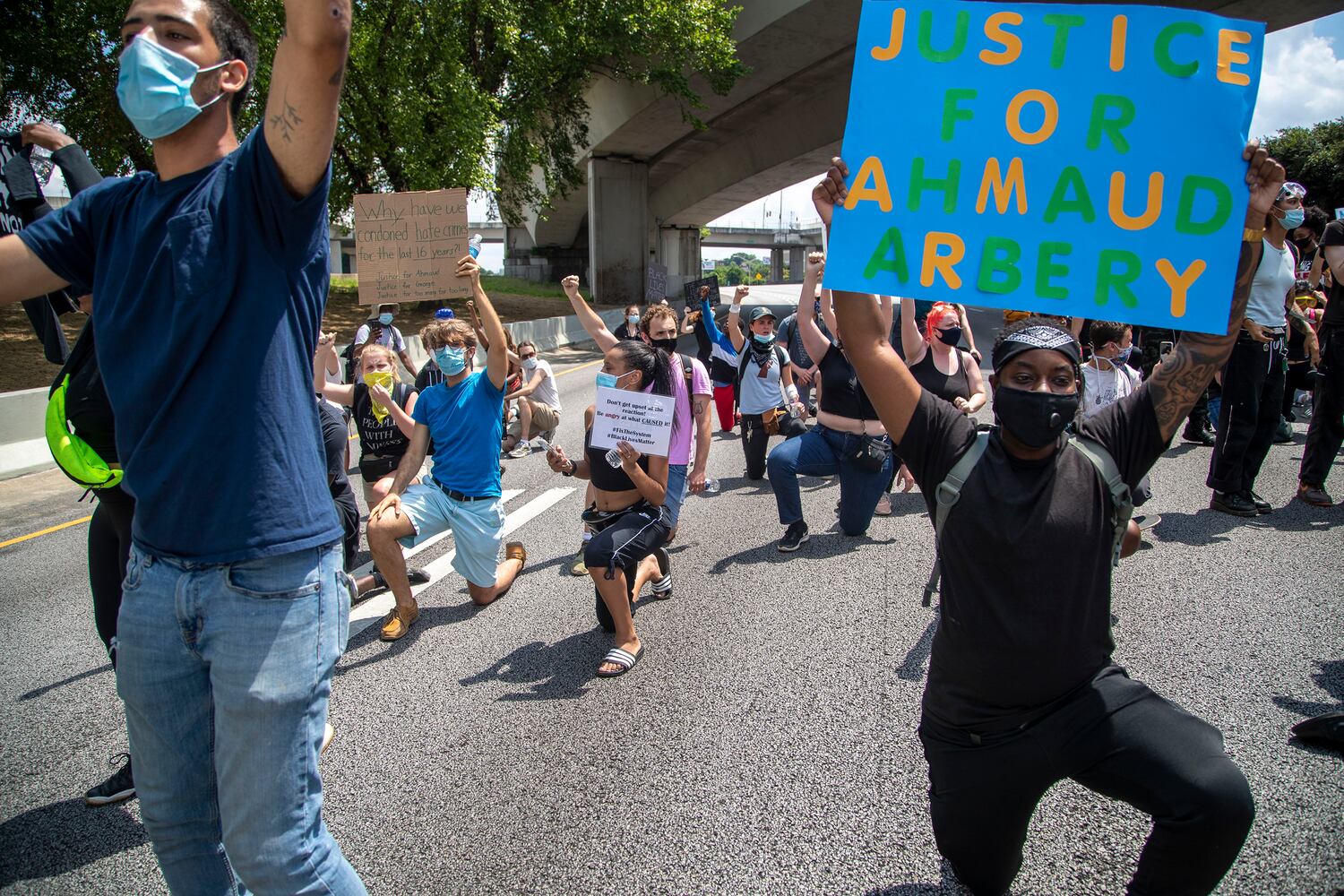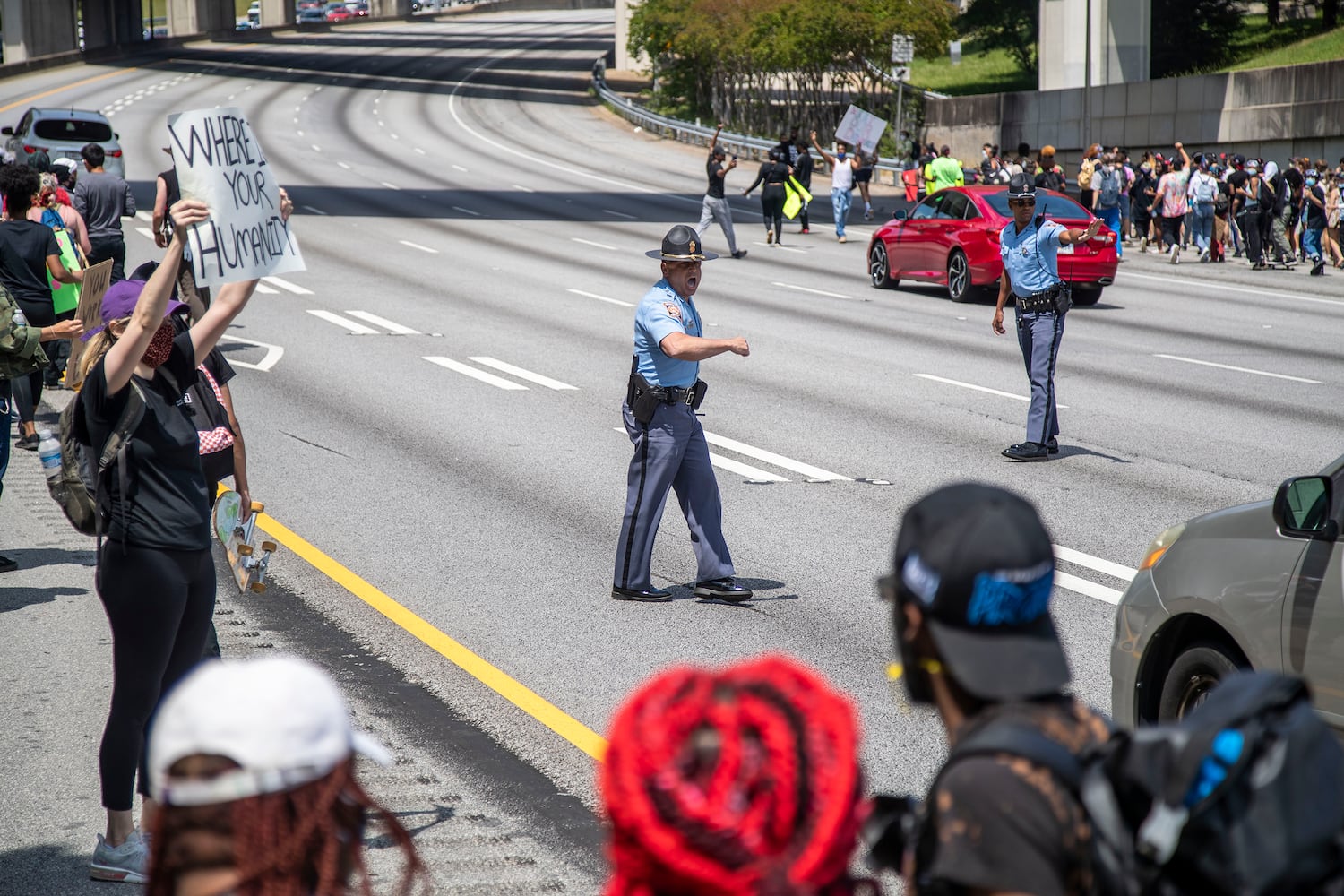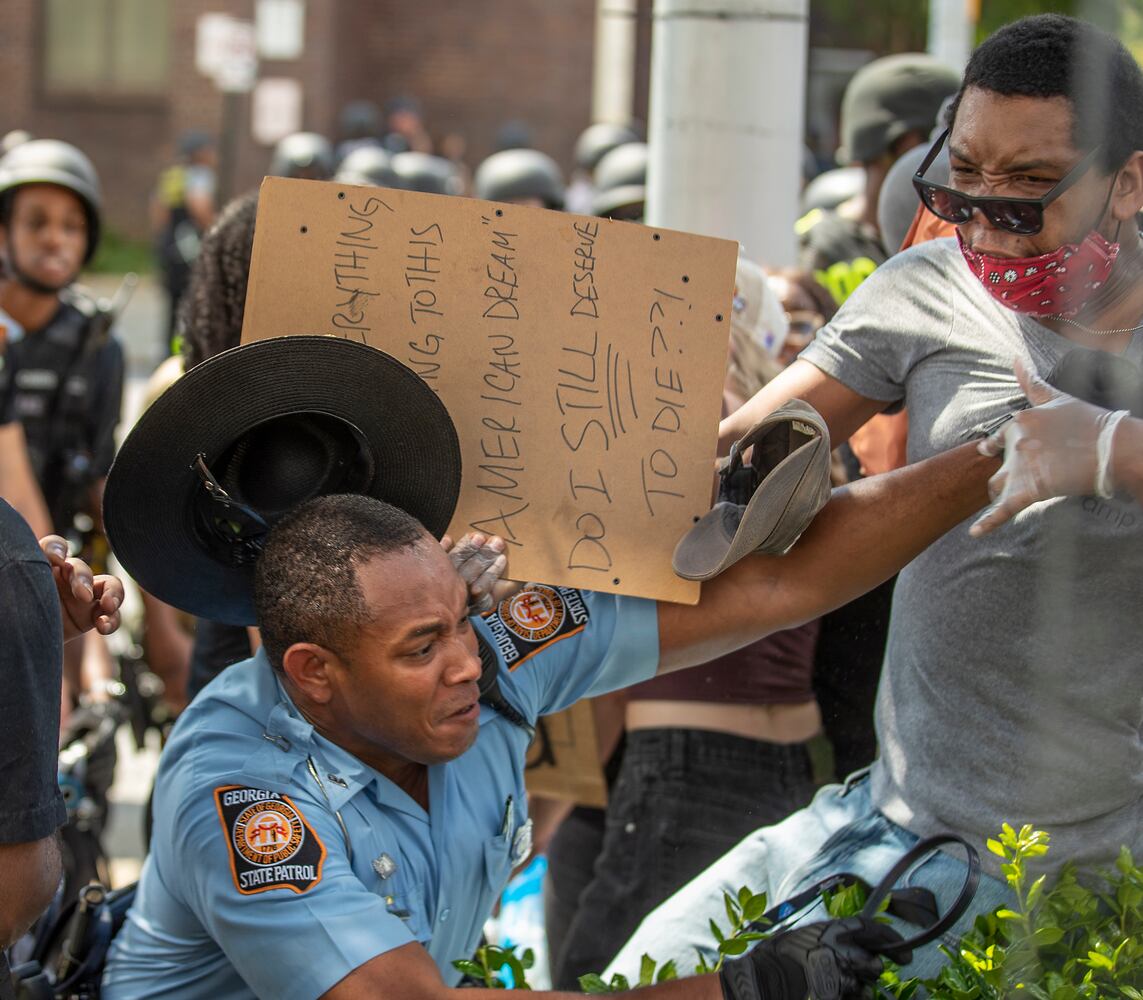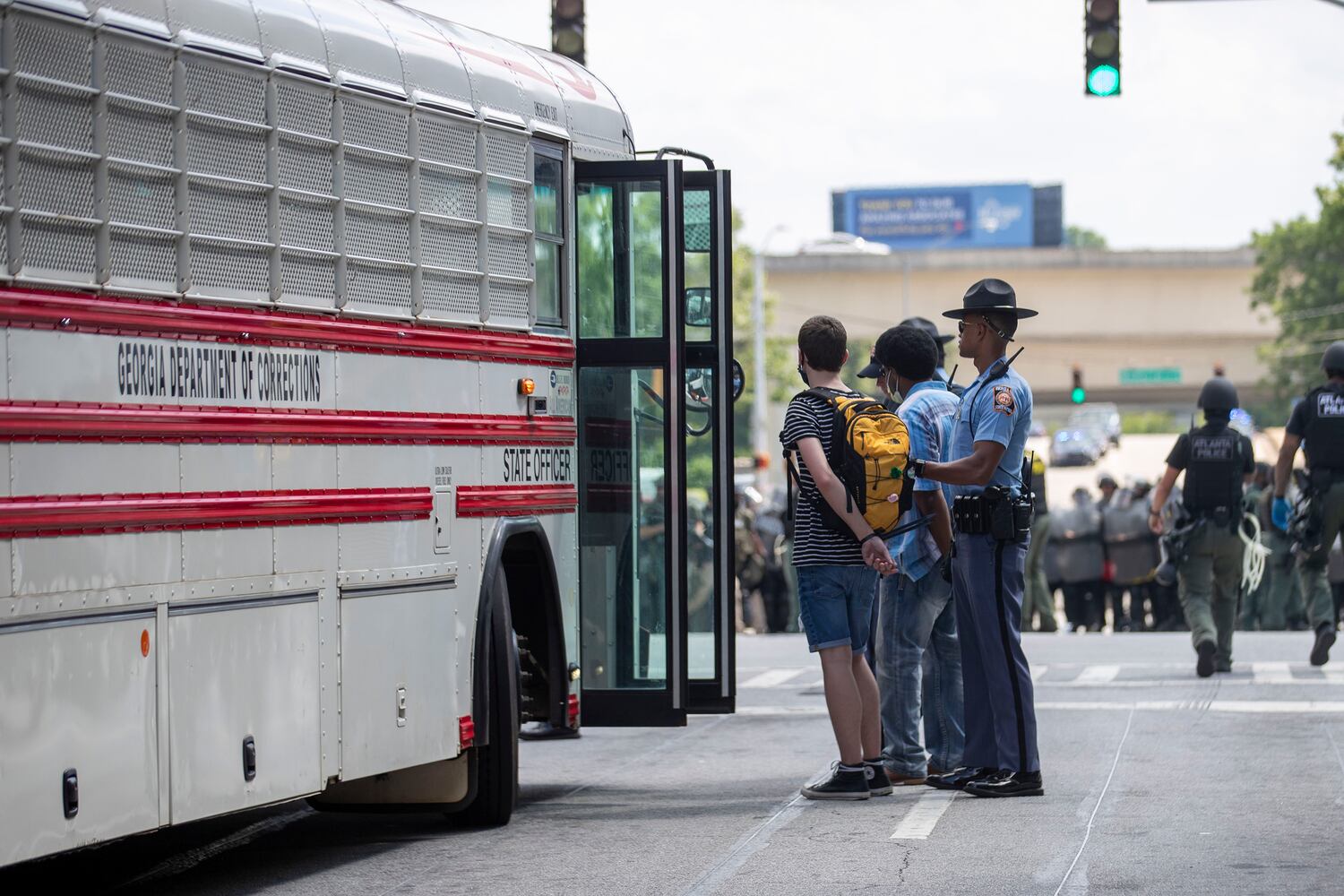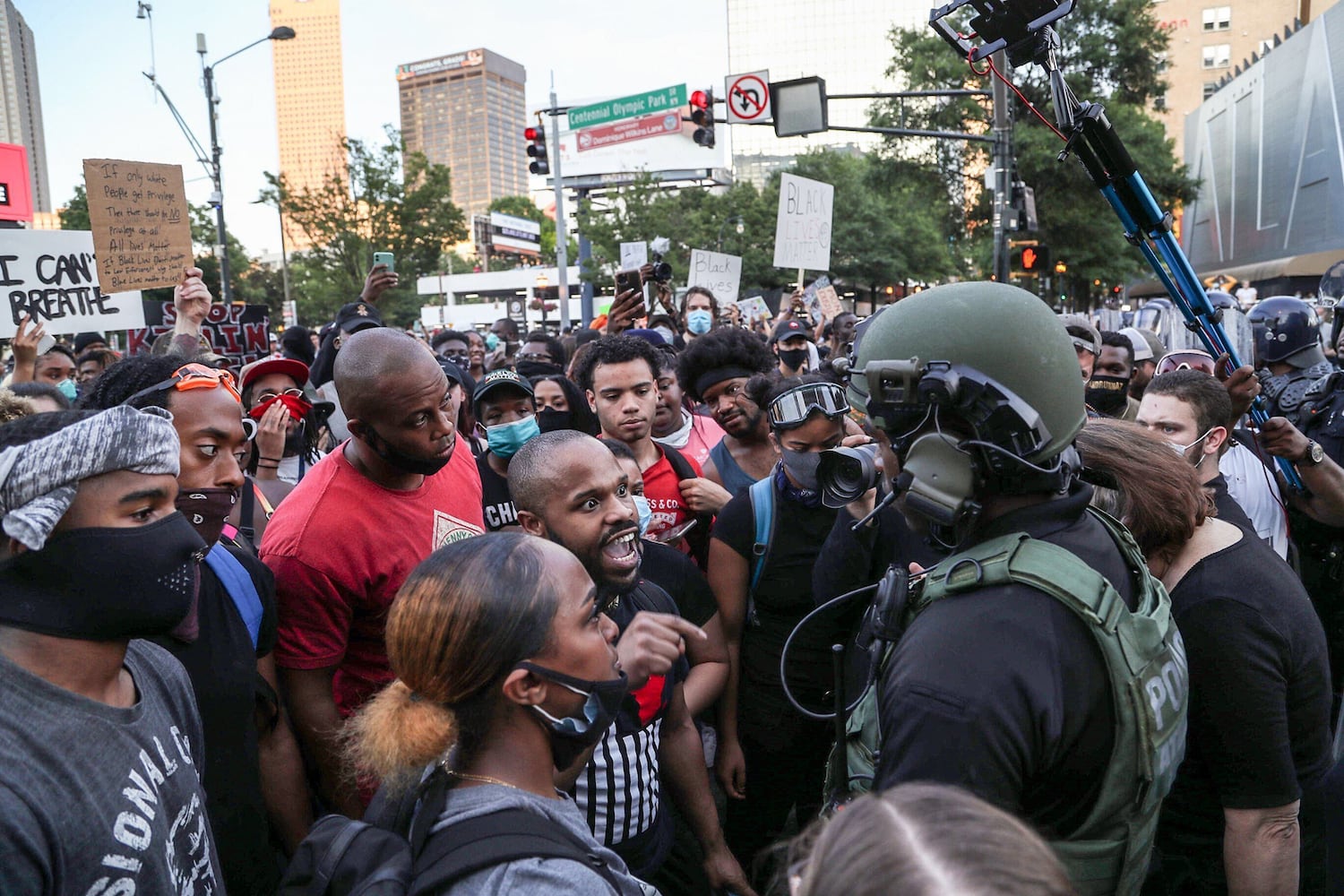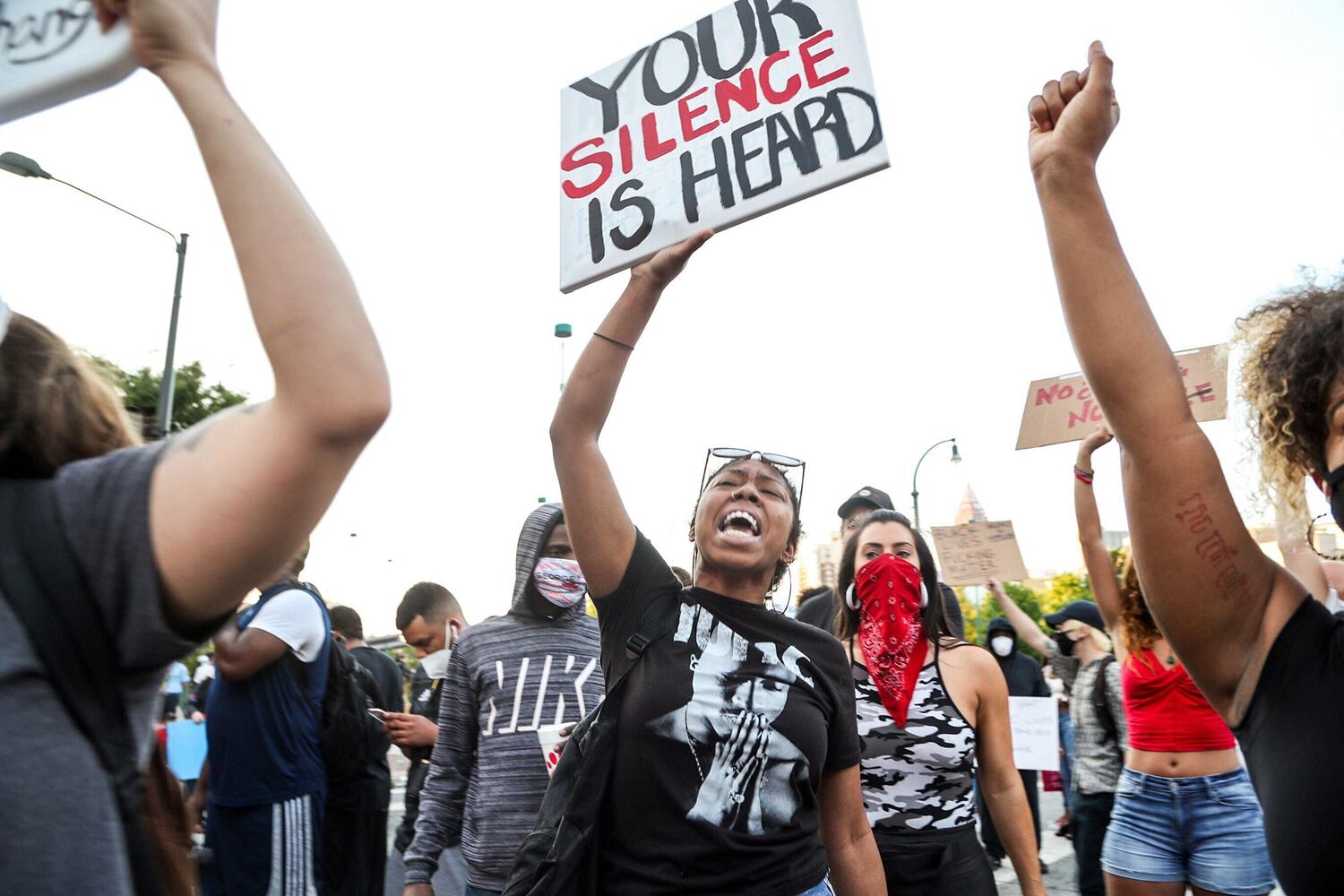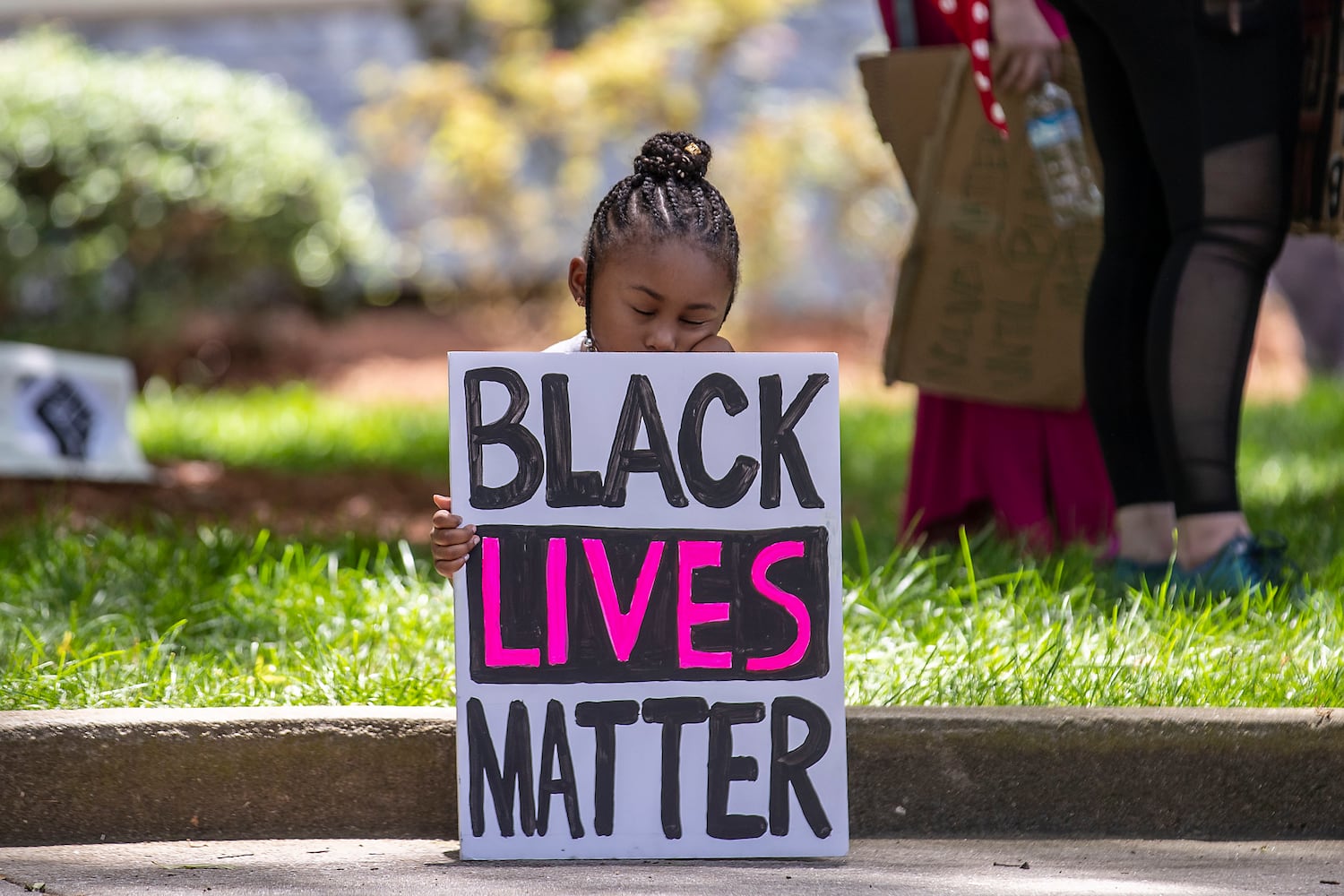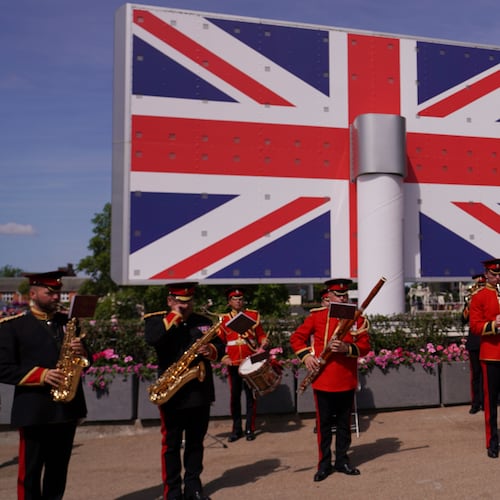Let me introduce you to Alyssa Pointer.
She’s a visual journalist at The Atlanta Journal-Constitution, and you’ve likely seen her stunning photography during the past few weeks.
You probably wouldn’t recognize her on the street, but she was herself in the news last week. Police detained her as she was covering the protests in Atlanta. More about that in a bit. First, a little more about her.
She grew up in Clayton County – Jonesboro, to be exact. A graduate of Sandy Creek High School in Fayette County, she went on to study photojournalism at Western Kentucky University. While in school, she interned at Creative Loafing in Atlanta, the Milwaukee Journal Sentinel and the Louisville Courier-Journal. After graduating in 2016 she participated in The New York Times Student Journalism Institute, a program where student journalists and recent graduates learn from New York Times editors and journalists. Then she interned at the Chicago Tribune.
She came to the AJC in late 2017. One of her early assignments was covering the high-profile murder trial of “Tex” McIver, the lawyer convicted in the 2016 shooting death of his wife.
The protests, violence and looting has been her assignment lately.
It’s a tough assignment, and one that takes tenacity and talent.
“As a Southern, African-American, female photojournalist, I find it extremely important to make sure that my perspective is taken into consideration while documenting these historic times,” Pointer said. “My hope is that the images I create, along with the images of other photojournalists, no matter their racial or gender identity, will allow our nation to reflect.”
After documenting the protests through last weekend, on Monday afternoon Pointer followed a group of protesters toward the downtown connector.
As she headed up an embankment, an officer from the Georgia Department of Natural Resources detained her. (The DNR officers were apparently assigned to the protests as part of the effort to increase the law-enforcement presence.)
“I told him that I was a journalist with The Atlanta Journal-Constitution,” Pointer said. “I was doing my job and complying with the other officers’ commands.”
Officers ordered her to put her hands behind her back, and they placed “zip ties” on her wrists.
“I told the officers that I was a member of the press,” she said. “Another officer saw my badge and went to try and find whoever detained me.”
She was told to sit down on the ground. Soon other journalists recognized what was happening and appealed to the officers.
She was released.
Pointer’s experience was obviously upsetting to her, and she joined an alarming number of journalists during this time who have been detained, arrested, gassed and attacked.
VIDEO: AJC reporters on the ground during protests
It’s a troubling trend, and one all Americans – and Georgians — should be concerned about.
Even if you have disagreements with media coverage, or perhaps you distrust certain media organizations, this issue matters to you.
Why?
It’s important to remember that in her work covering these protests Pointer – like all our AJC journalists — enjoys no special privileges because she is a member of the media. She is walking the streets, and, on behalf of the public, documenting what’s happening. You have the same right to walk the streets and even take your own pictures.
As journalists, we are citizens and subject to the law.
In fact, that’s been a point of emphasis for AJC journalists as we cover the tension in our hometown.
The guidance we give our staff, including Pointer, while covering protests: always display your credentials; have your personal identification on you; and comply with authorities.
And if law enforcement detains one of our journalists, we urge them to:
- Stay calm and identify yourself as a journalist with The Atlanta Journal-Constitution. Inform officers that you are on assignment for the newspaper and ask why you are being detained.
- Follow all directions and orders of officers.
- Let them know the AJC will protest if you are detained or if your phone or equipment is taken.
Usually there is not an arrest once law enforcement verifies a journalist’s credentials. But if an AJC journalist is arrested, we ask them to: ascertain what agency is making the arrest and where they are being taken – and ask to notify our attorney.
Things haven’t gotten that far during these tense times for us in Atlanta.
It’s become popular to cast journalists as somehow working for or against a cause, rather than seeing someone like Pointer for who she is: a hard-working person with a job to do.
So, what did she do after her release?
“After the incident I kept working,” Pointer said. “I photographed a protester getting into a physical altercation with a Georgia State Patrol officer. In contrast, on that same day I photographed an Atlanta Police Officer uniting with a protester as they both knelt to show solidarity near the CNN Center.”
“I kept shooting throughout the whole ordeal.”
At a time when it’s become popular to label reporters as “the media,” and allow politicians to cast working journalists as having an agenda, Pointer was pressing on after her detention. She was concerned with bringing the story to you through her photographs.
“The job of newspaper visual journalists has always been to document history,” she said. “That is exactly what my colleagues and I are doing during these protests. We get into the middle of things so that our audience feels as though they are present with us. We risk our lives with hopes that our audience may try and understand.”
Many American ideals are being tested during these difficult times. But Pointer showed us all something important: how those ideas look close to home with the First Amendment at work. Right here, where we live, her work provides a powerful example evinced by a native of metro Atlanta.
-- Kevin Riley is editor of the AJC.
INSIDE TODAY’S NEWSPAPER
Our photographers have been documenting these extraordinary times. Today, we’ll share their photographs, which capture this tumultuous time in Atlanta’s history. We’ve packaged their work in an eight-page special section exclusively for our subscribers.
About the Author
Keep Reading
The Latest
Featured
